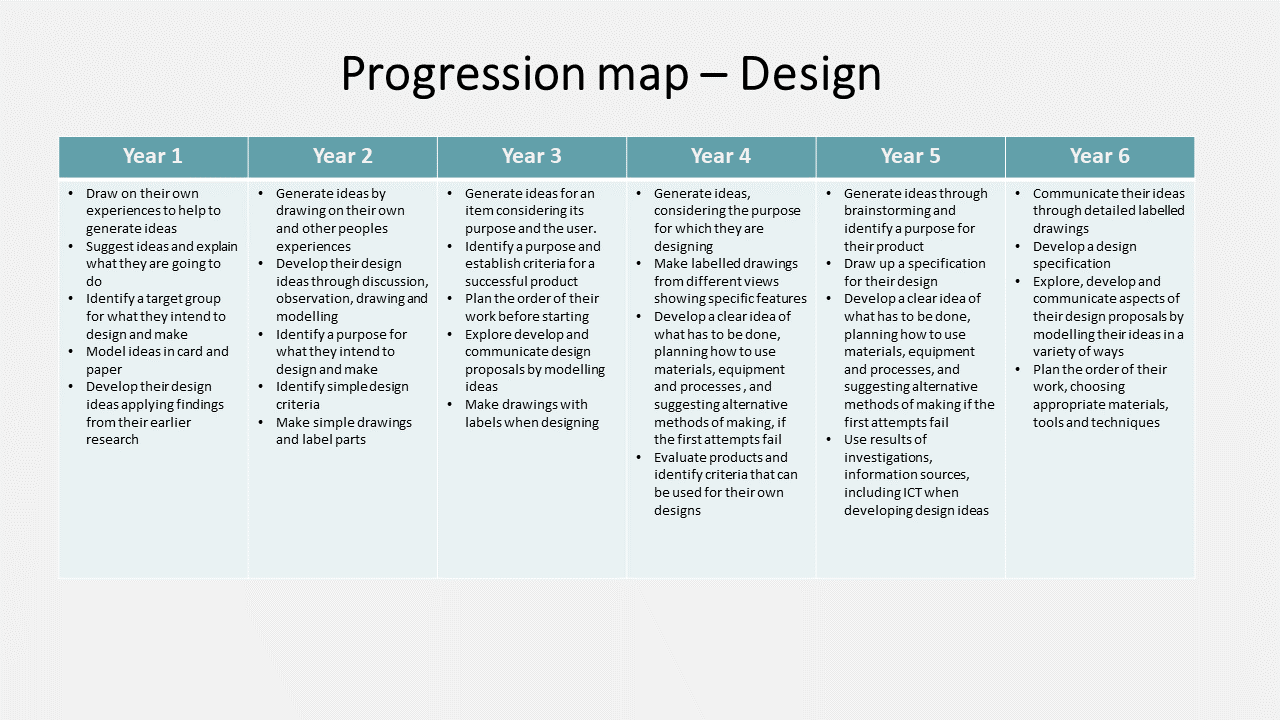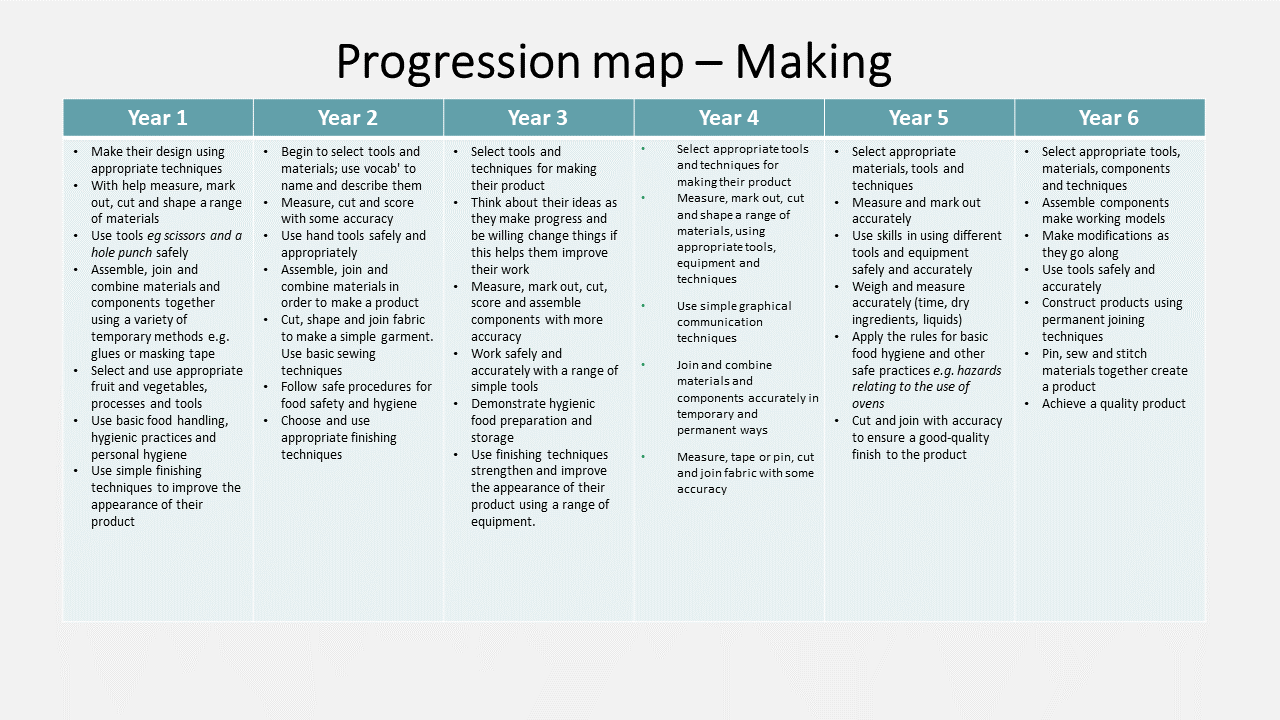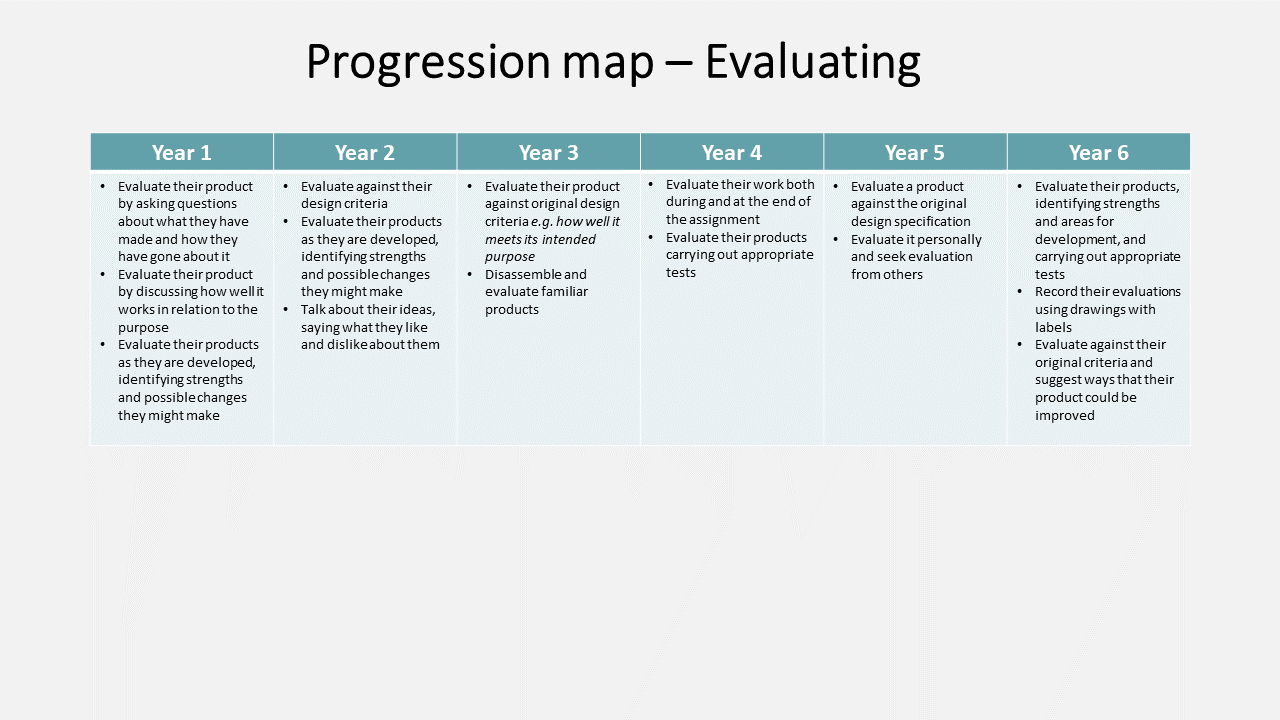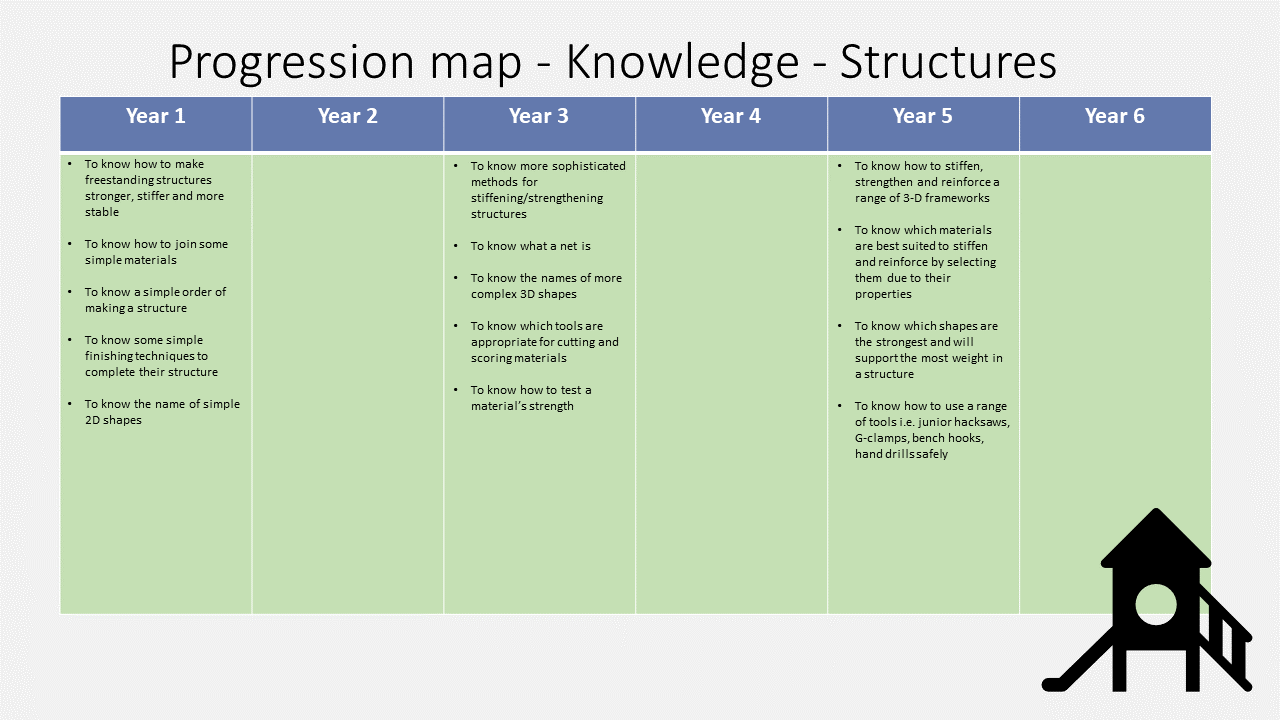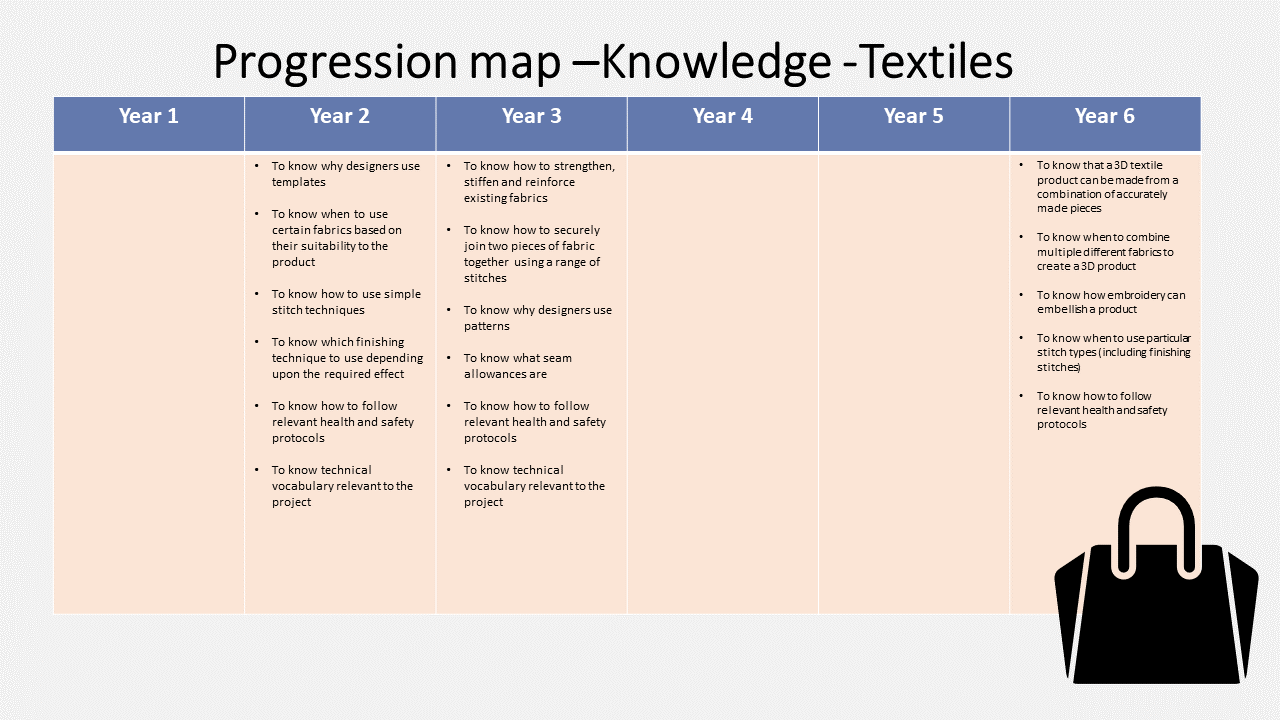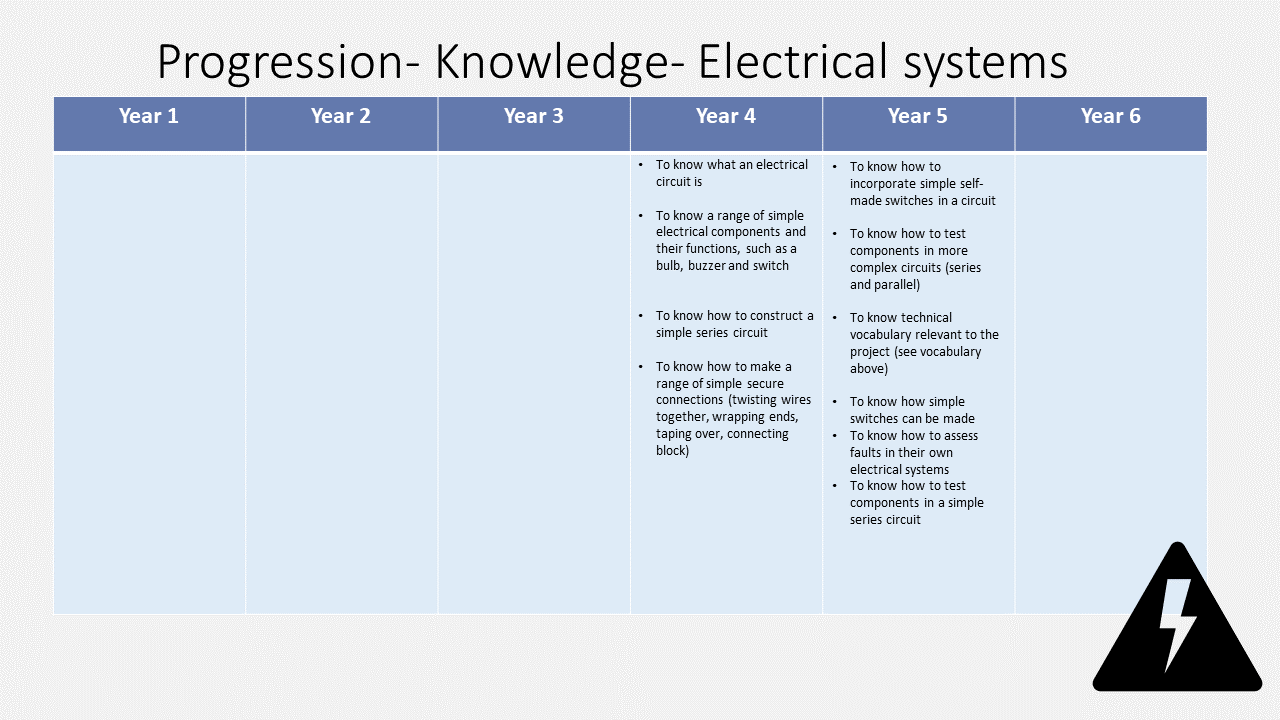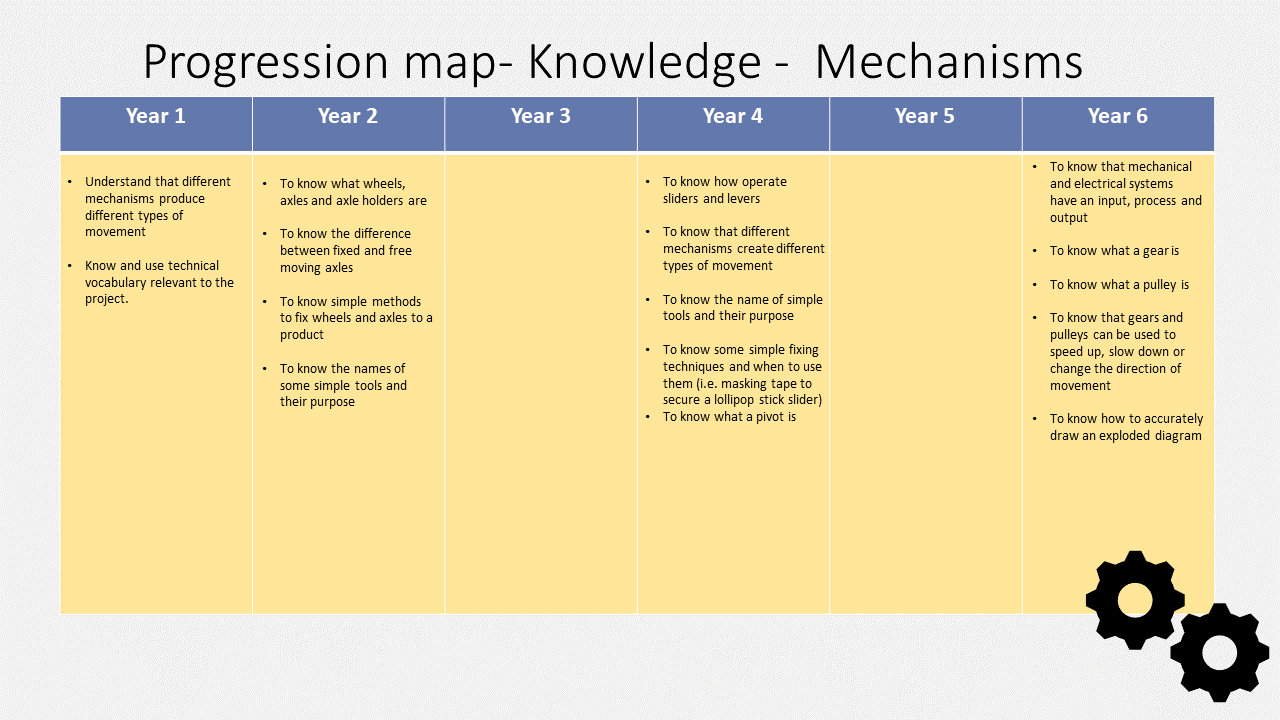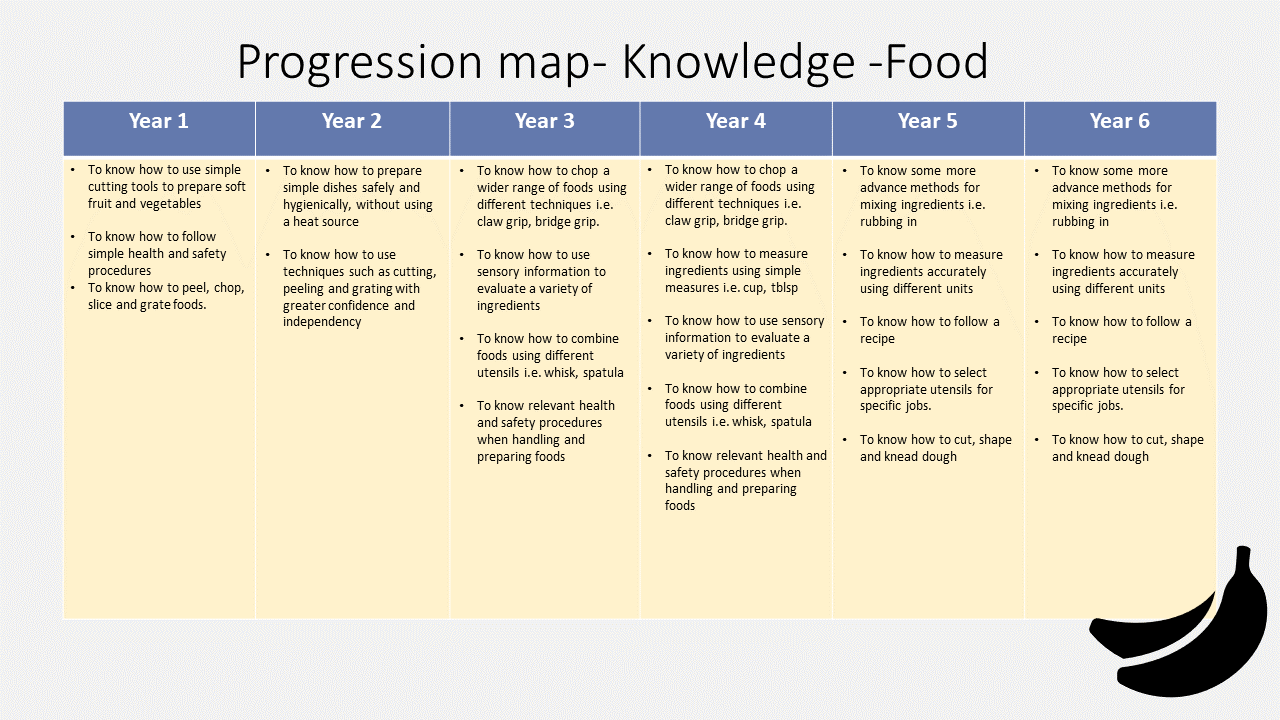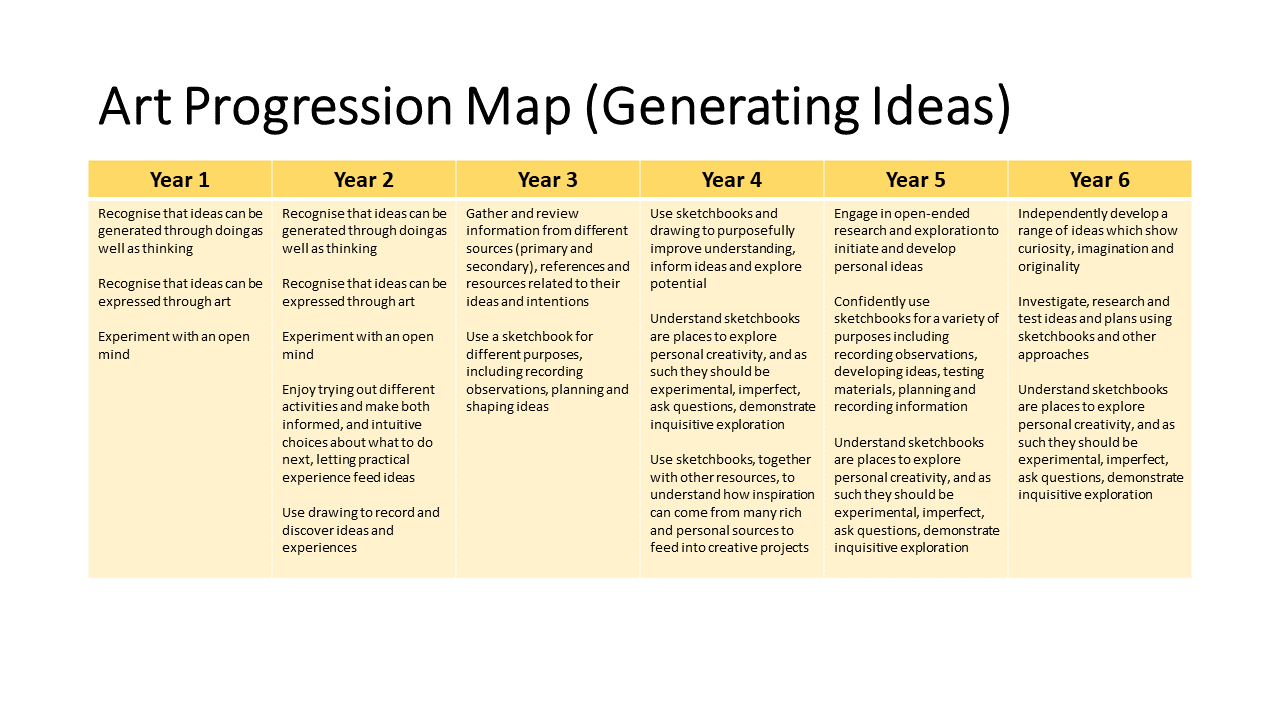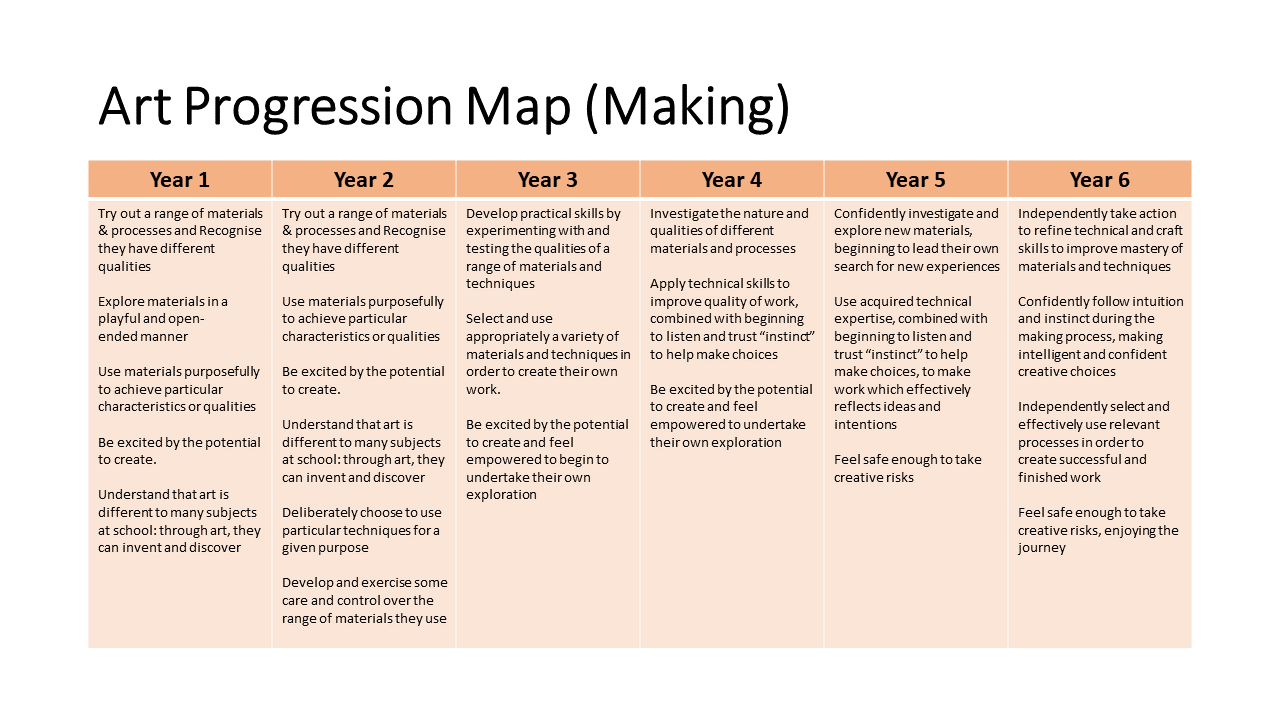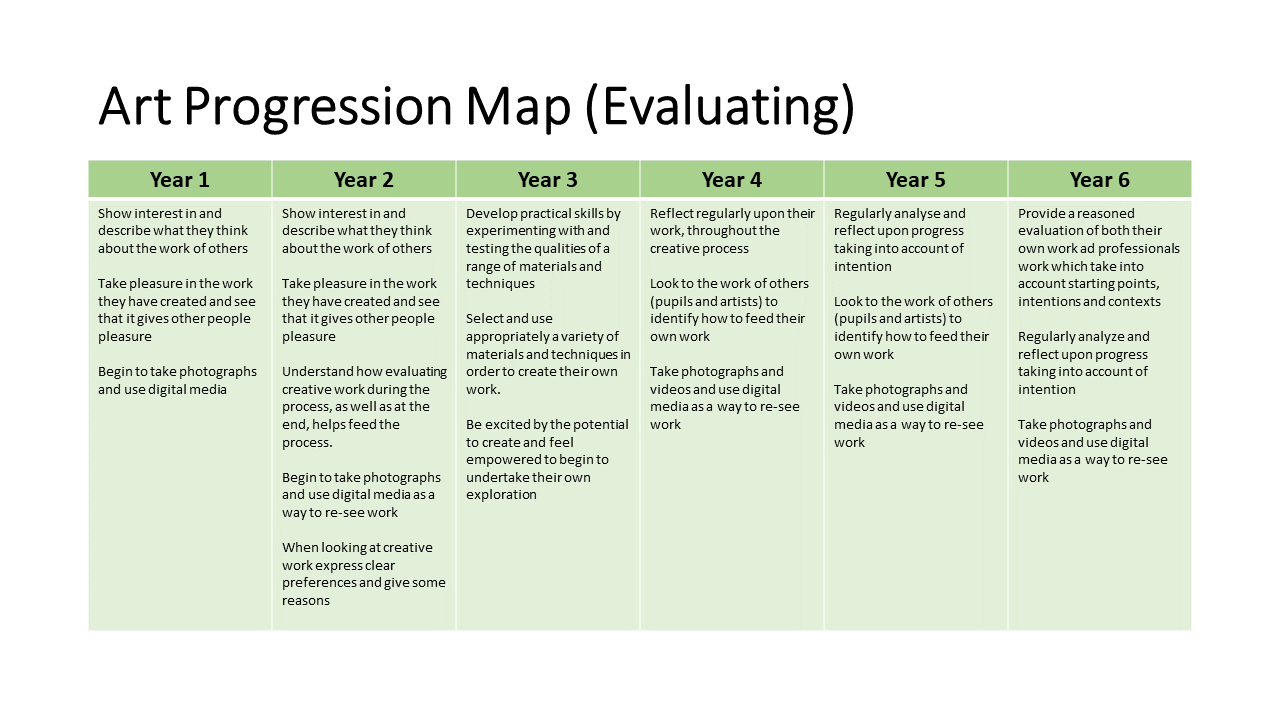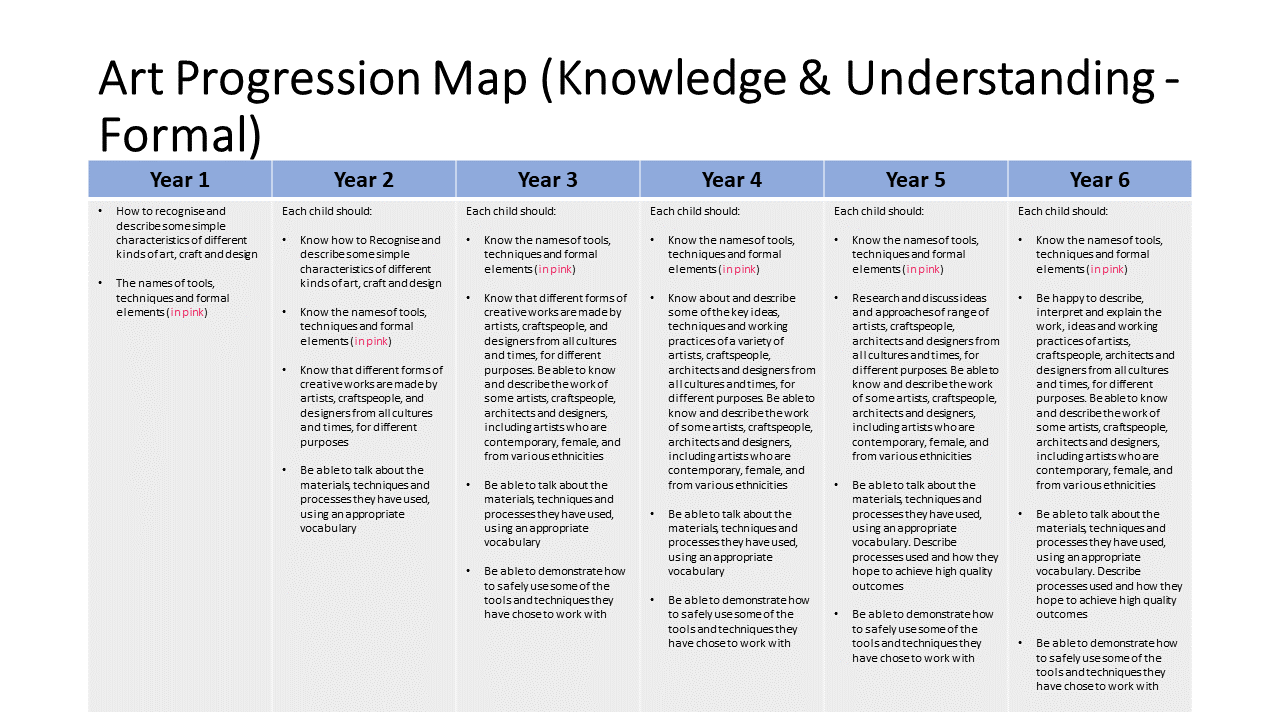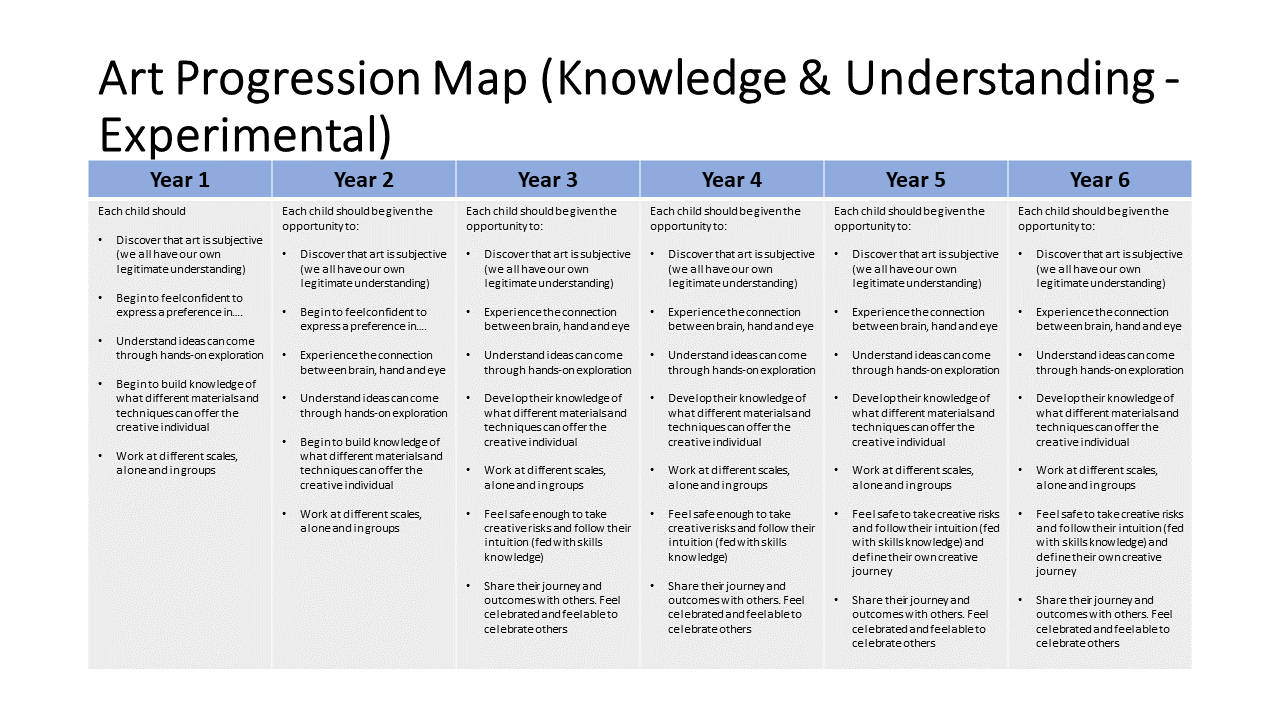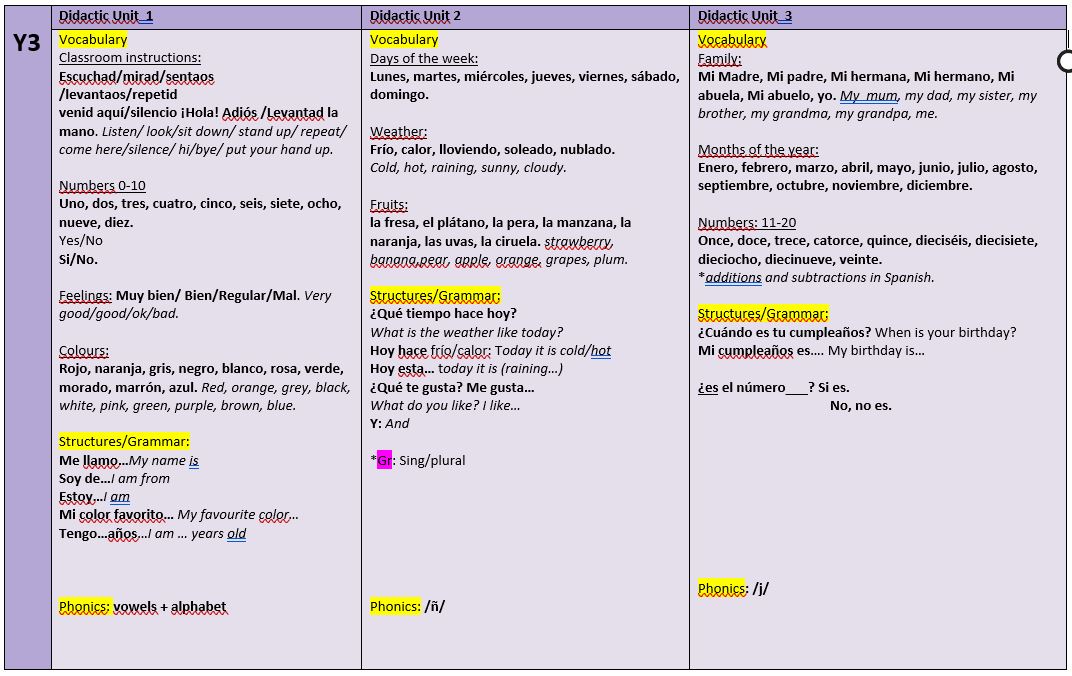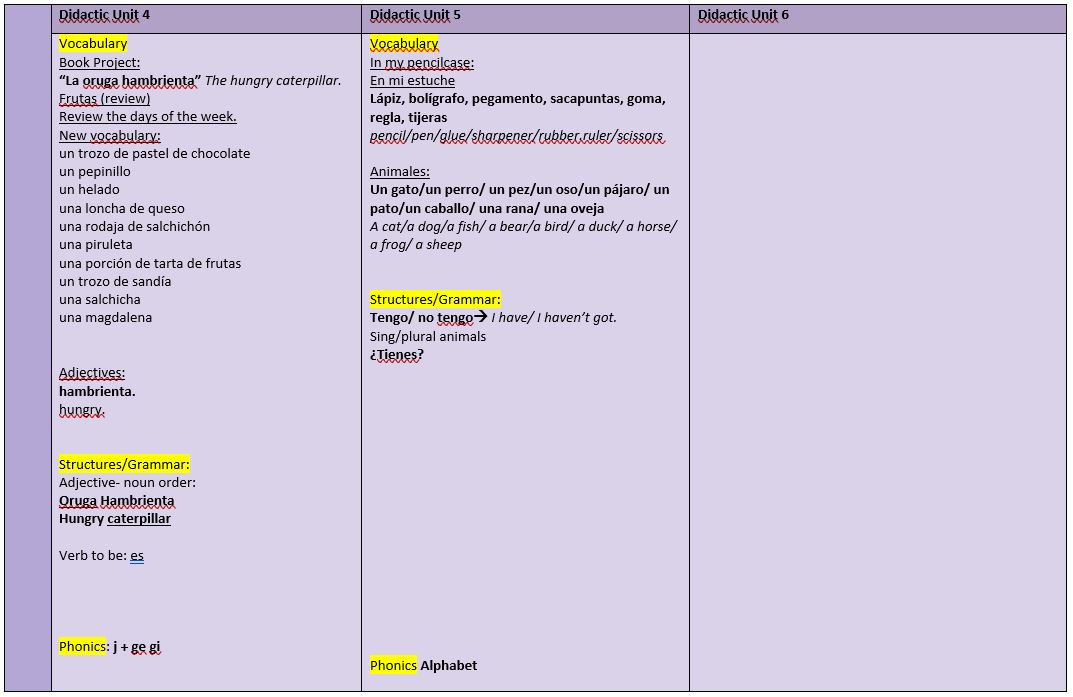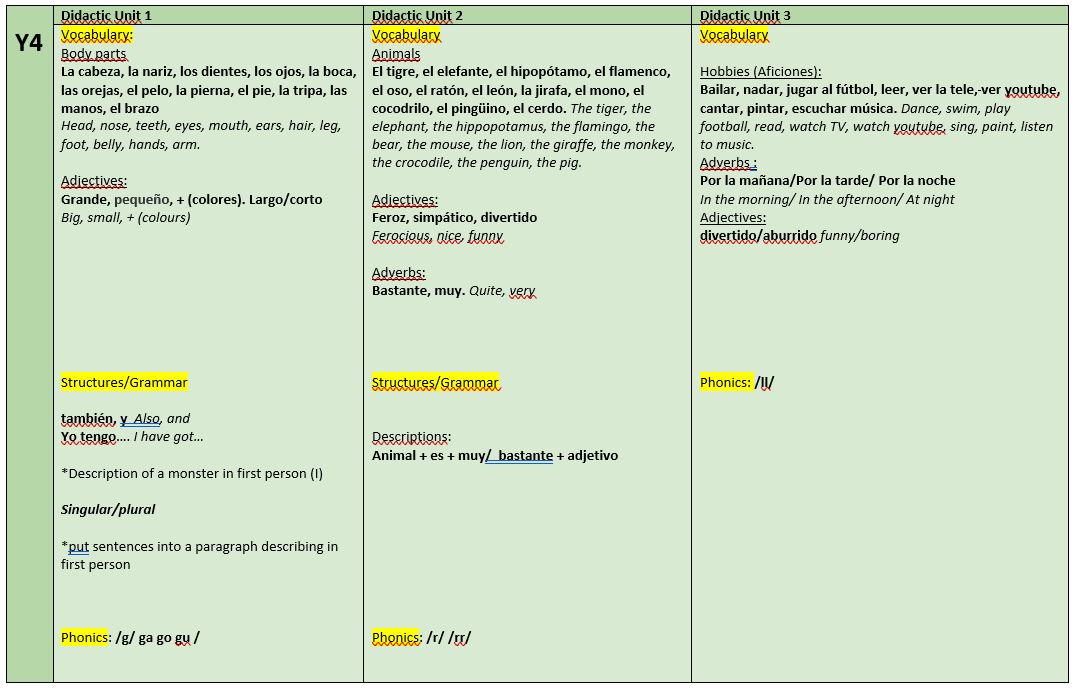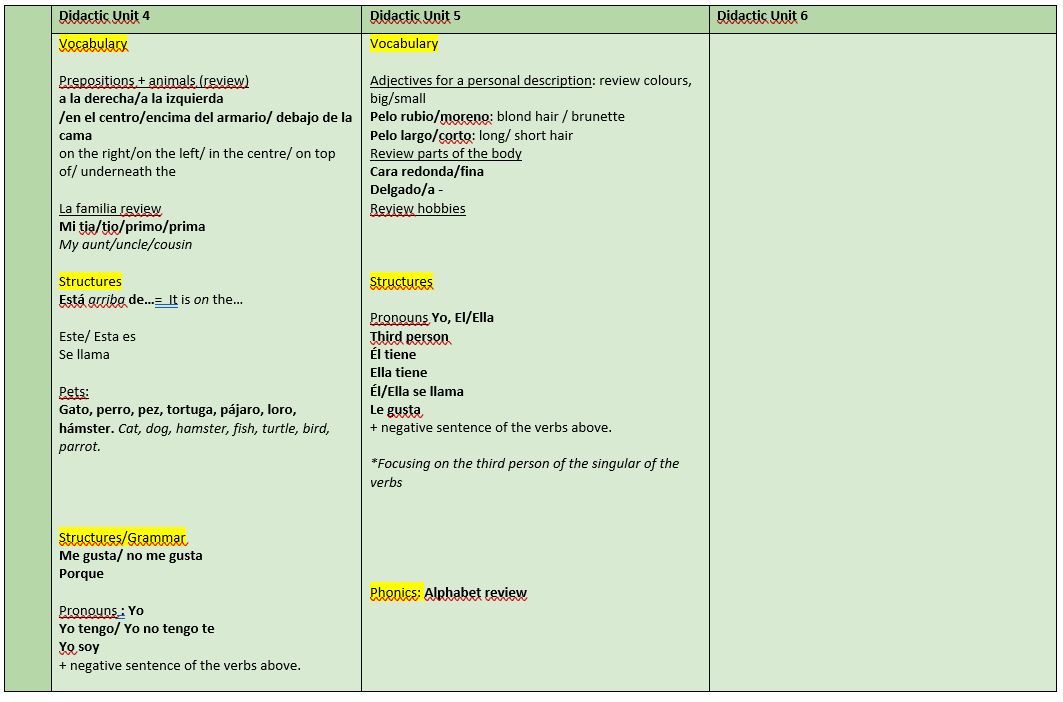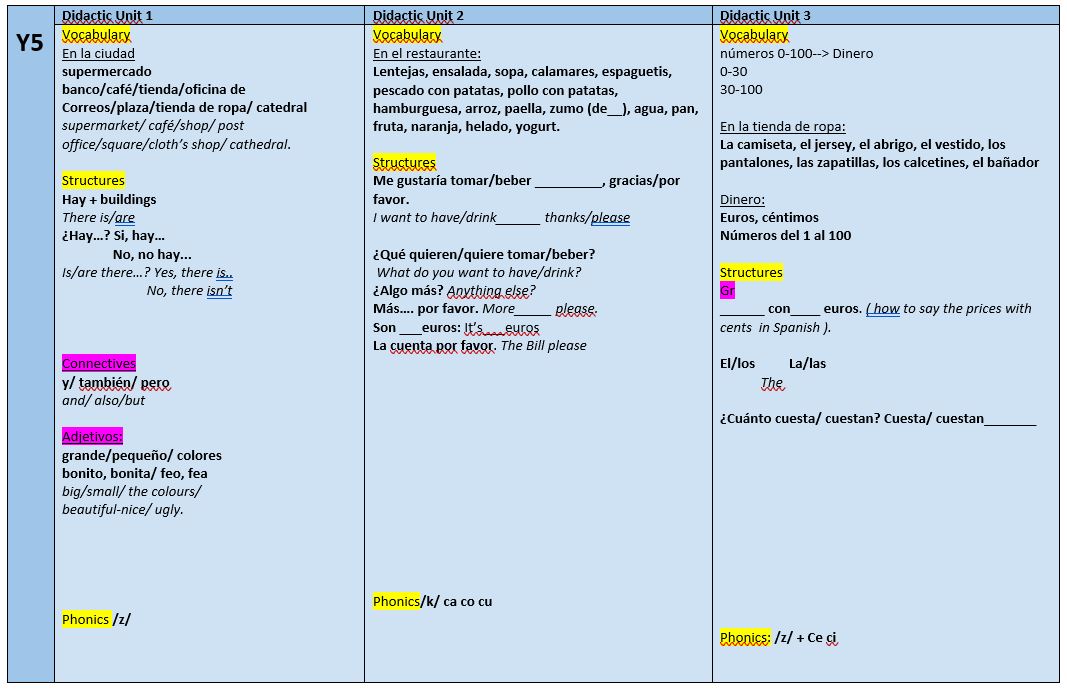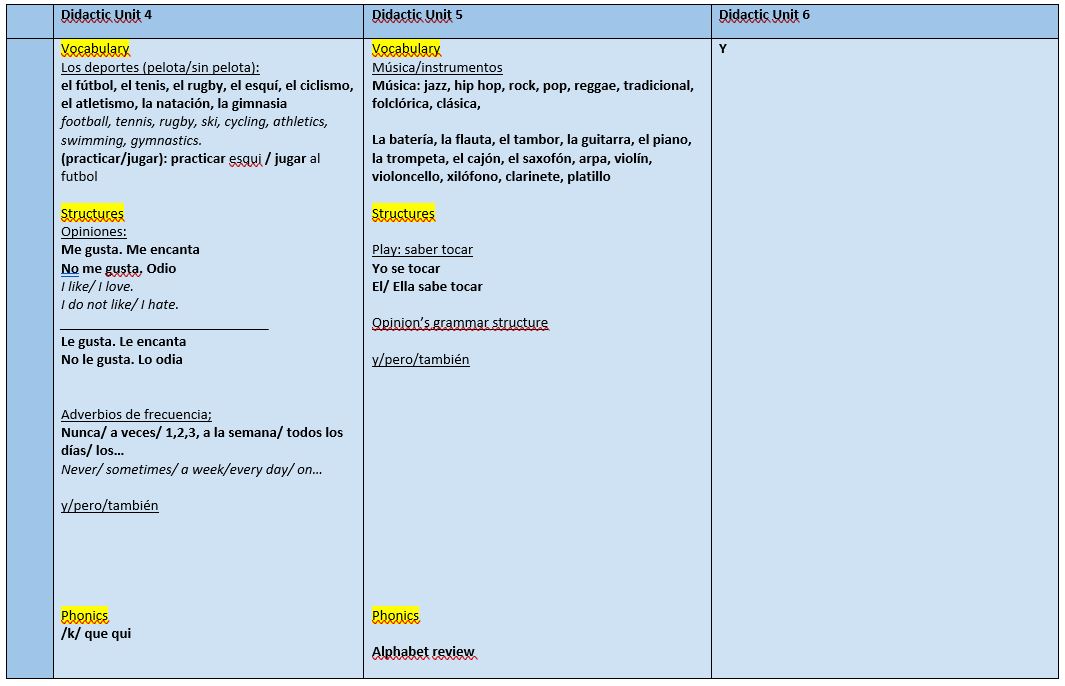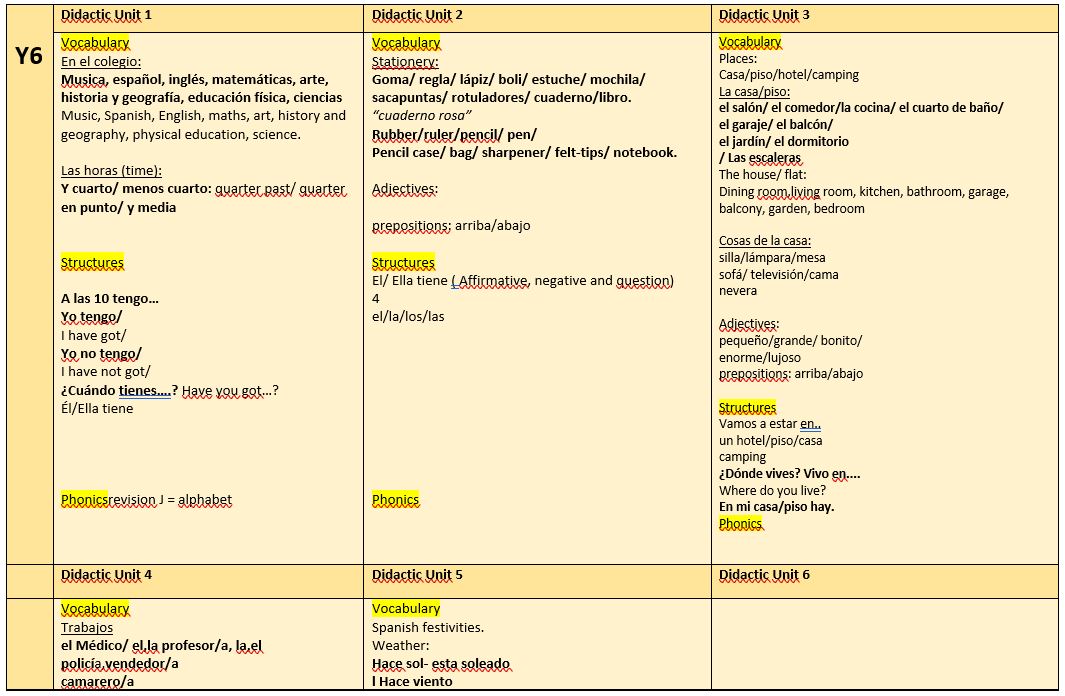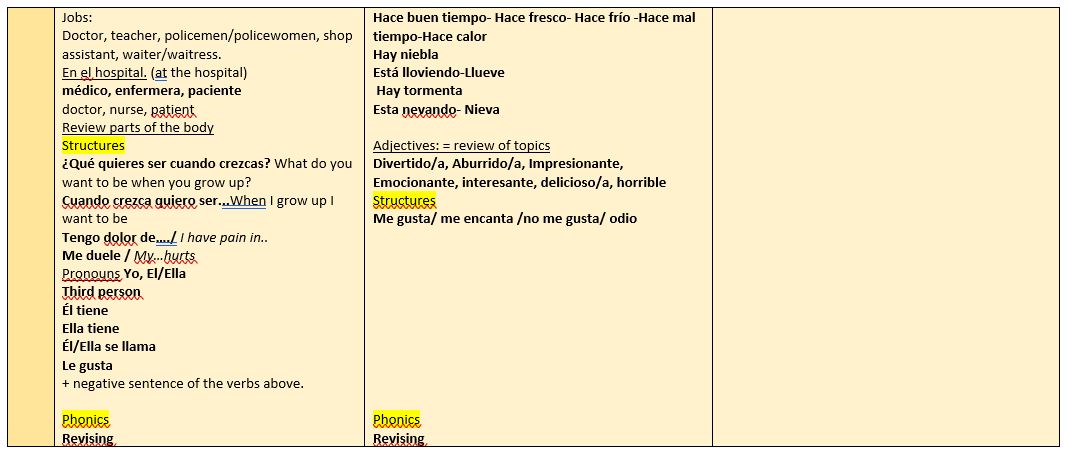Other Subjects
Please click on the subjects below for an outline of the curriculum in each subject.
Science
Science education provides the foundations for understanding the world through the specific disciplines of biology, chemistry and physics. Science has changed our lives and is vital to the world’s future prosperity, and all pupils are taught essential aspects of the knowledge, methods, processes and uses of science. Through building up a body of key foundational knowledge and concepts, pupils are encouraged to recognise the power of rational explanation and develop a sense of excitement and curiosity about natural phenomena. They are encouraged to understand how science can be used to explain what is occurring, predict how things will behave, and analyse causes.
The Academy uses the Kapow science scheme of work.
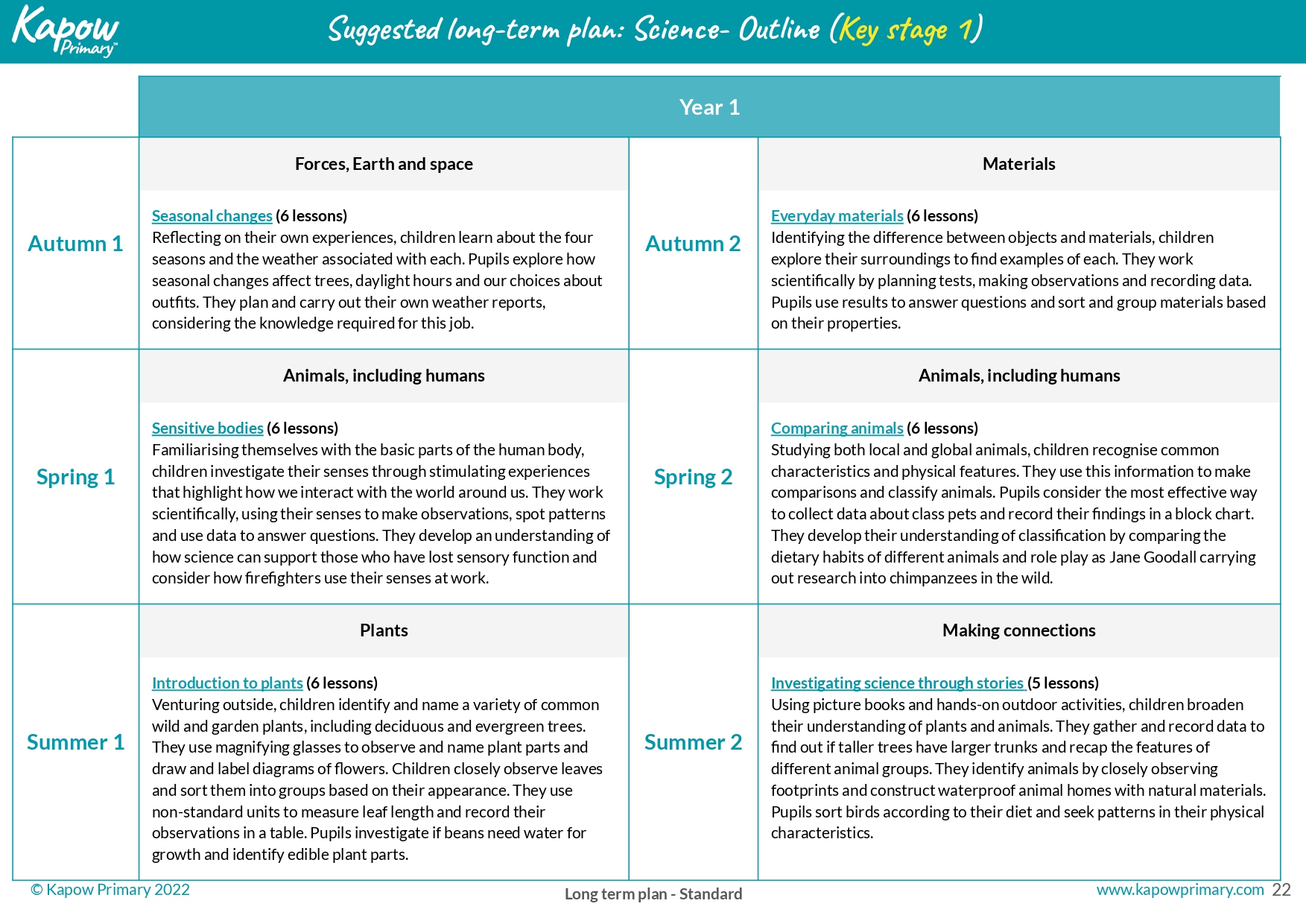
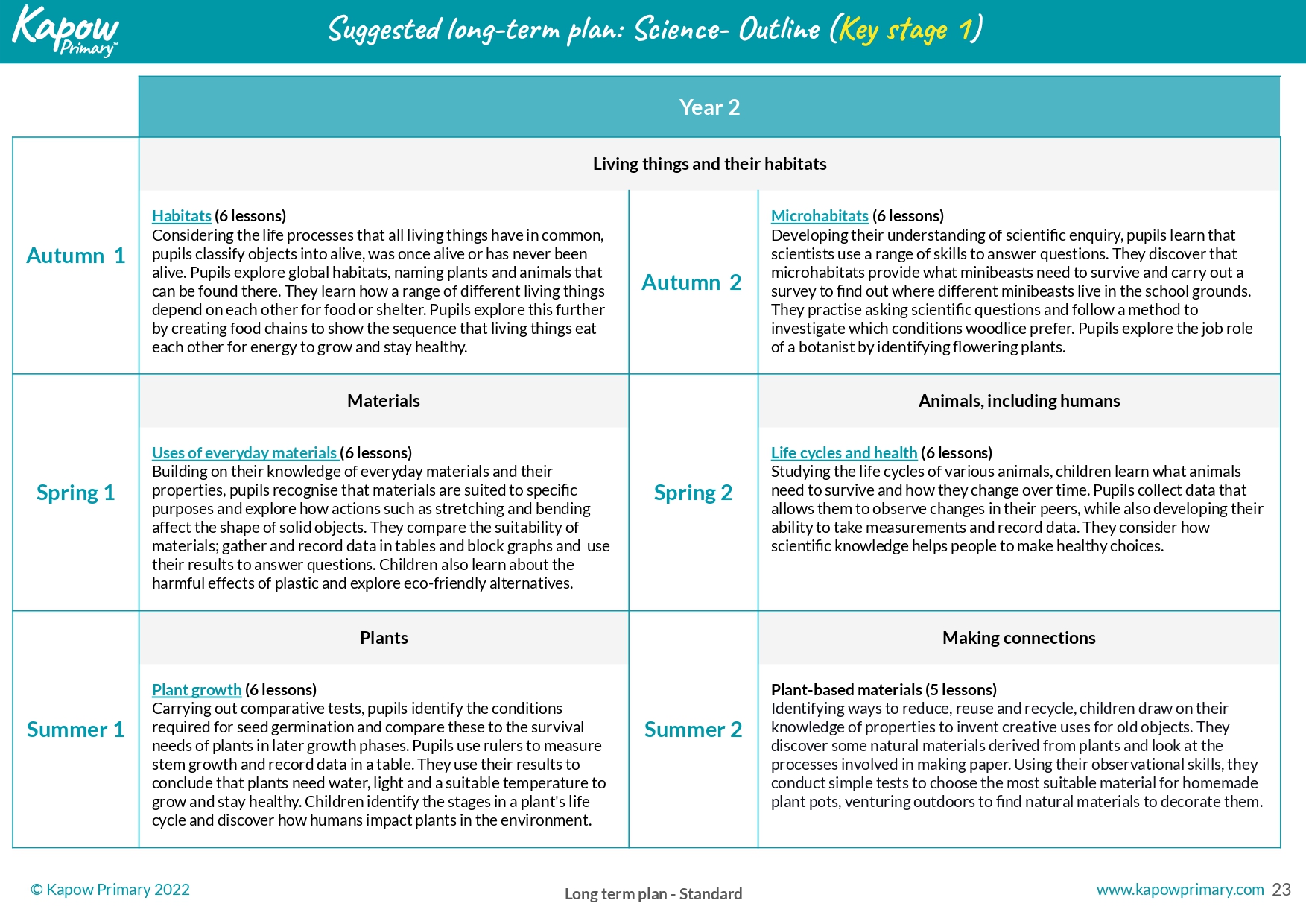
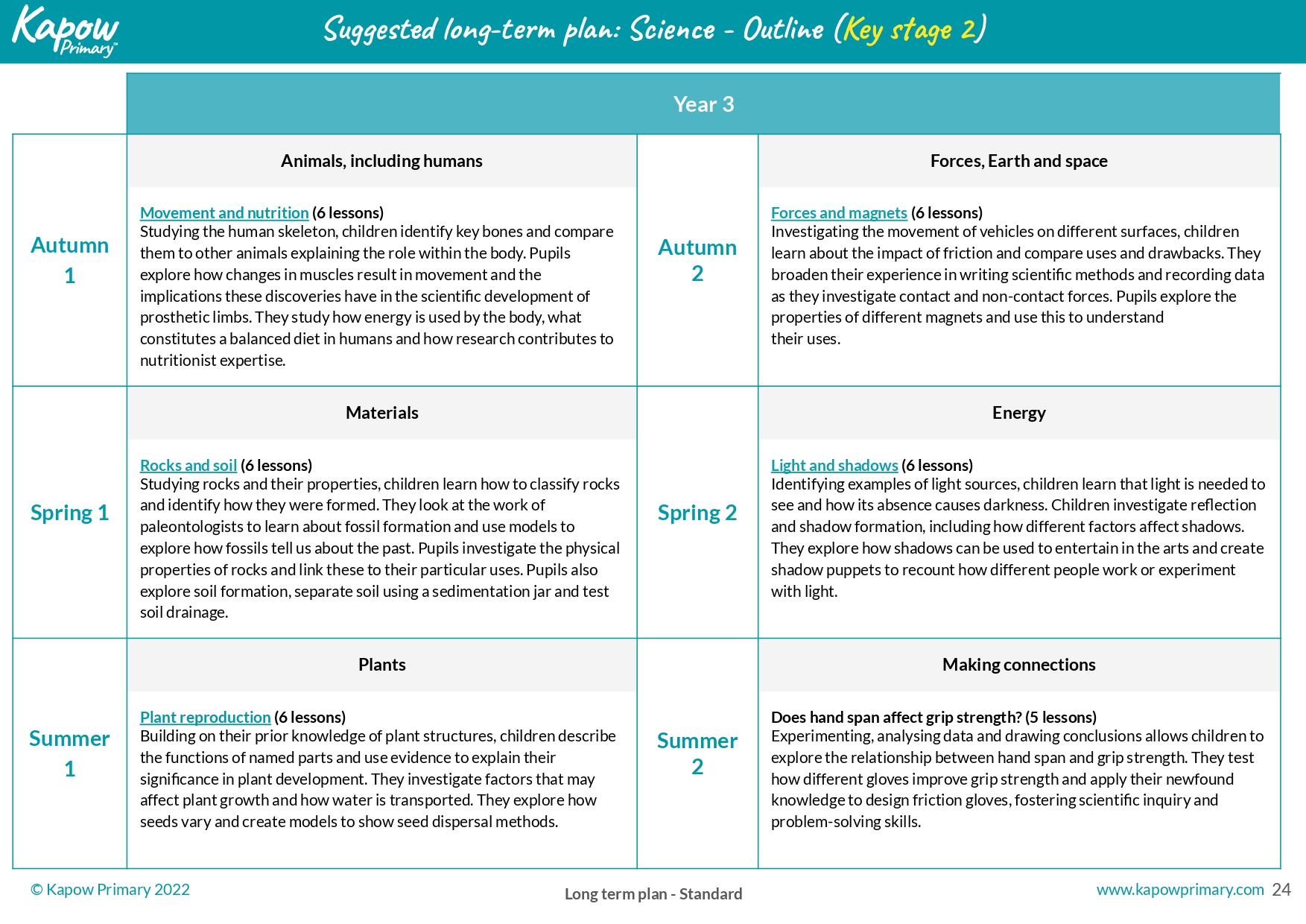
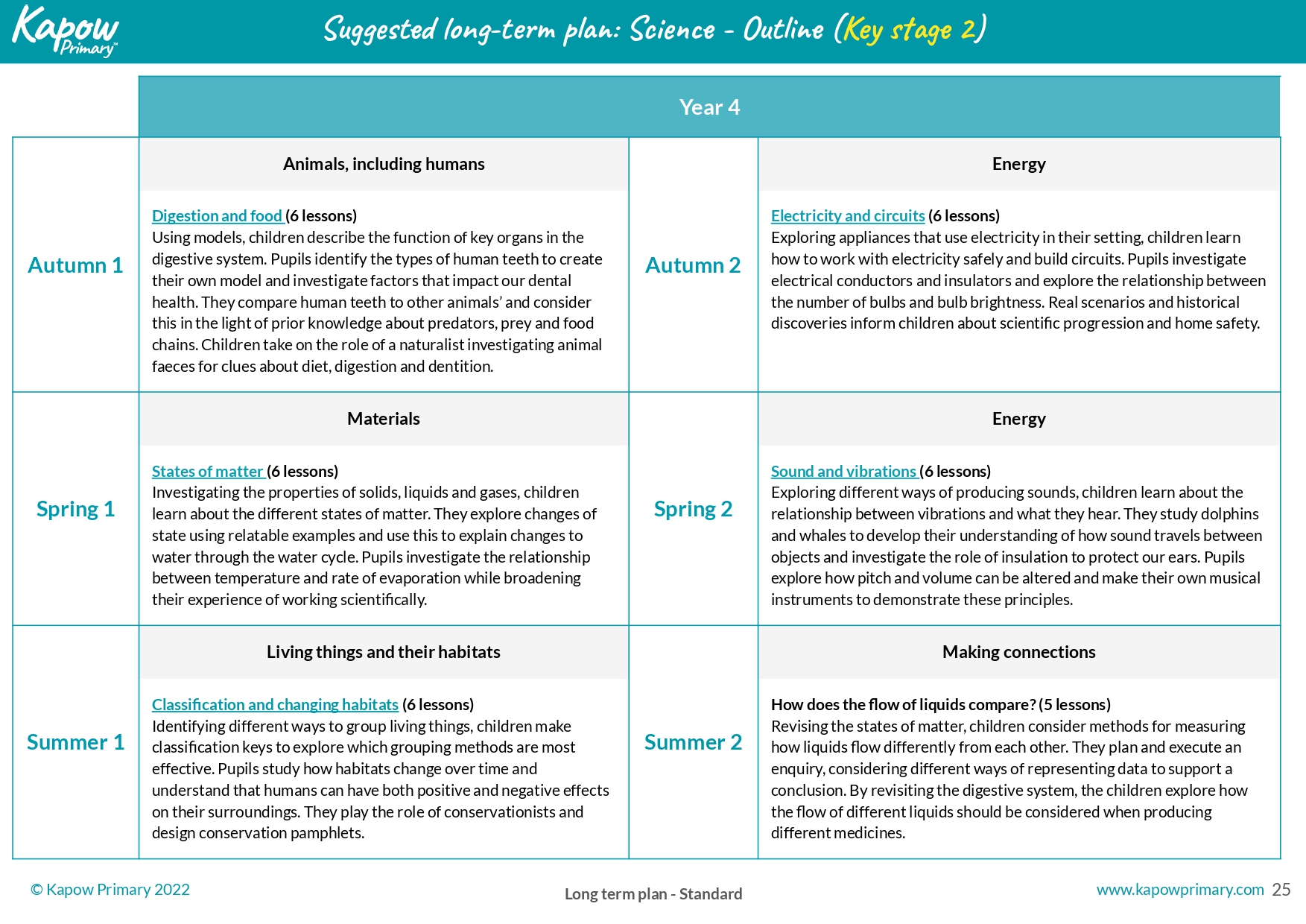
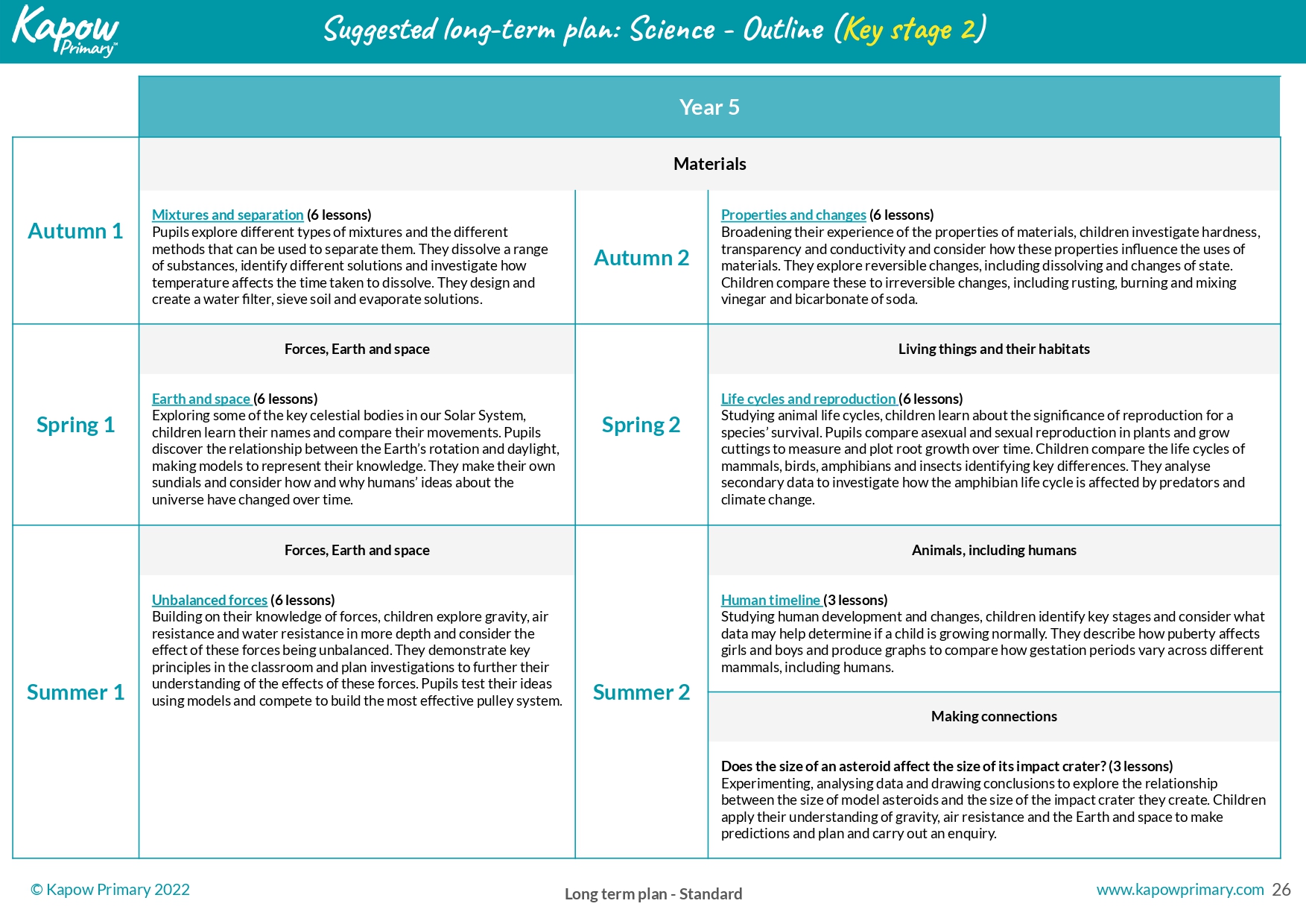
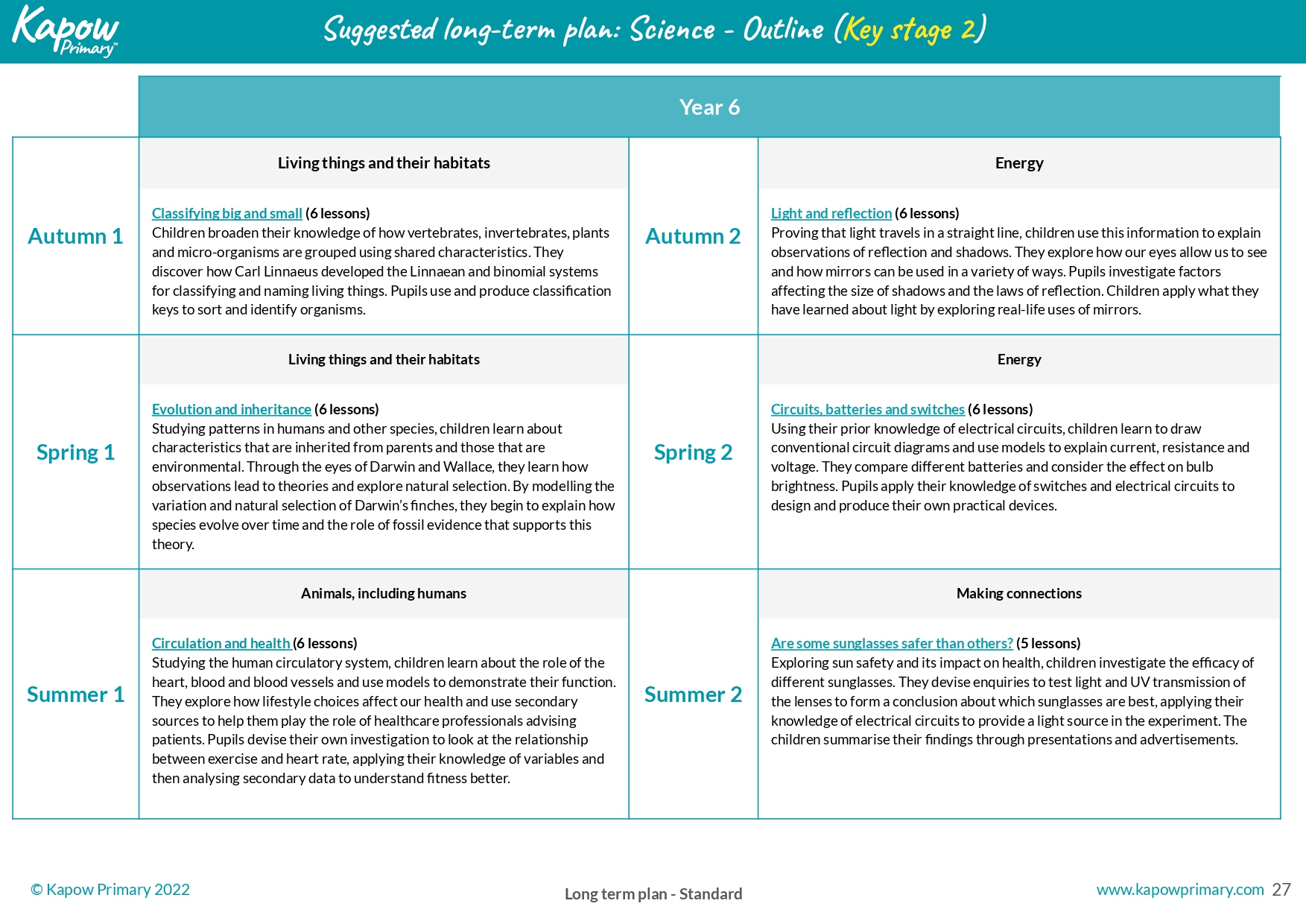
Geography
Geography education should inspire pupils’ curiosity and fascination about the world and its people that will remain with them for the rest of their lives. Teaching should equip pupils with knowledge about diverse places, people, resources and natural and human environments, together with a deep understanding of the Earth’s key physical and human processes. As pupils progress, their growing knowledge about the world should help them to deepen their understanding of the interaction between physical and human processes, and of the formation and use of landscapes and environments. Geographical knowledge, understanding and skills provide the frameworks and approaches that explain how the Earth’s features at different scales are shaped, interconnected and change over time.
We use the Kapow Geography scheme to support our geography curriculum.
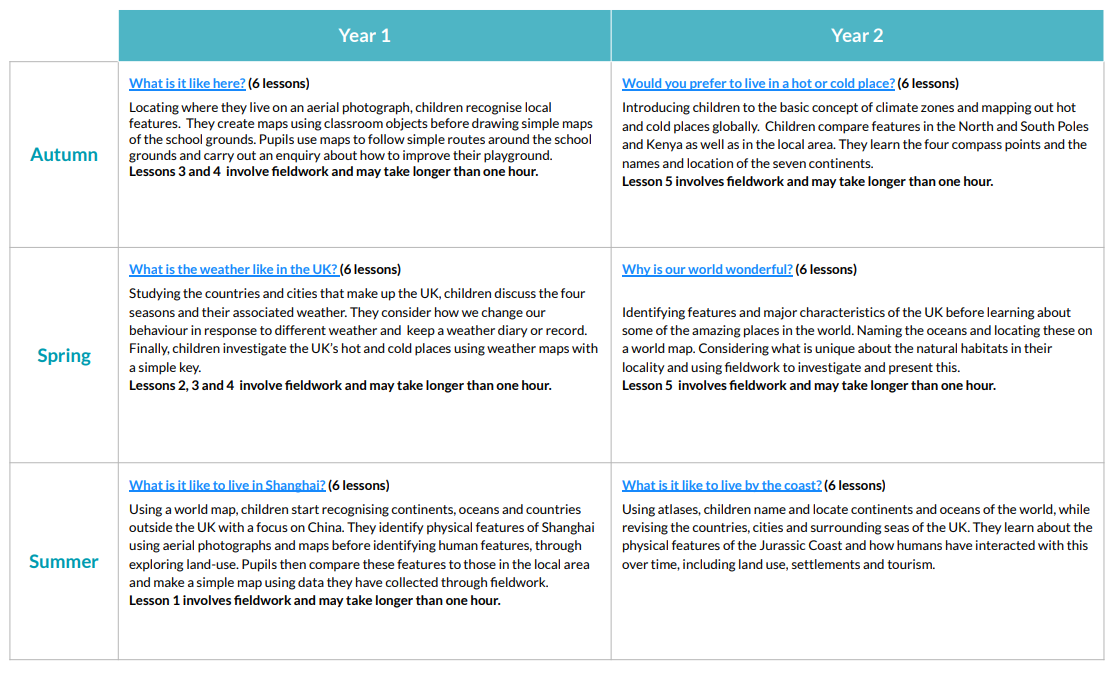
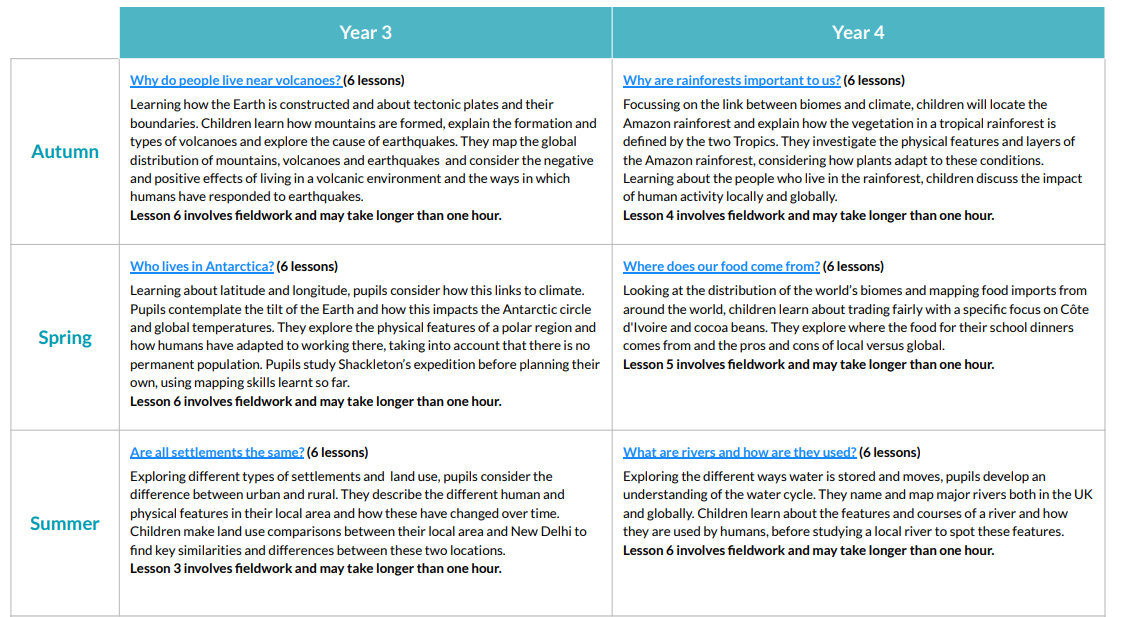
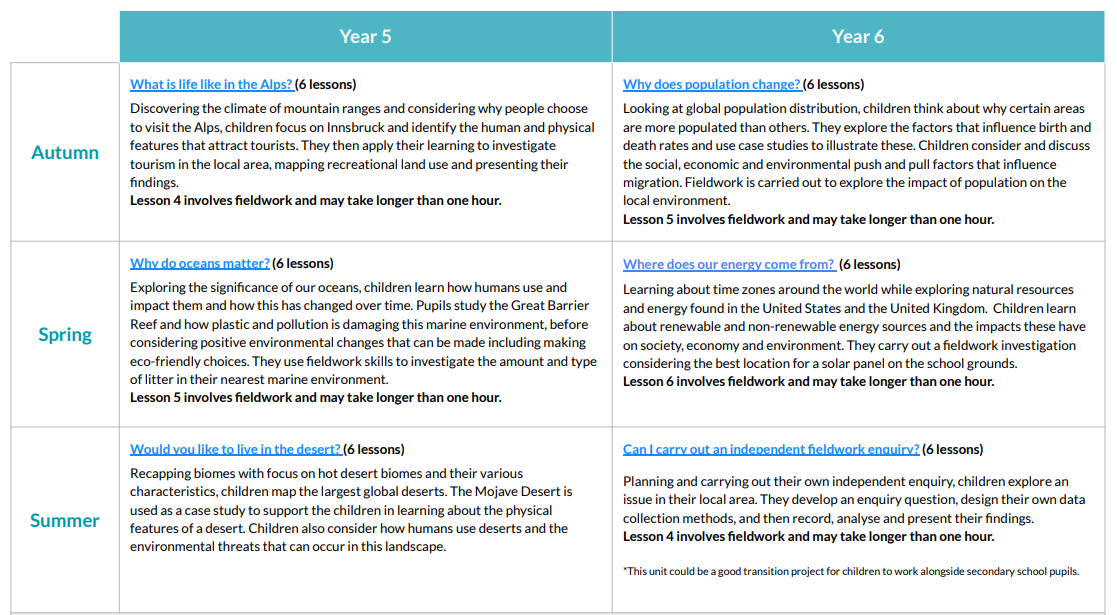
History
We aim to inspire pupils to be curious and creative thinkers who develop a complex knowledge of local and national history and the history of the wider world. We want pupils to develop the confidence to think critically, ask questions, and be able to explain and analyse historical evidence. Through our scheme of work, we aim to build an awareness of significant events and individuals in global, British and local history and recognise how things have changed over time. History will support children in appreciating the complexity of people’s lives, the diversity of societies, and the relationships between different groups. Studying history allows children to appreciate the many reasons why people may behave in the way they do, supporting children in developing empathy for others while providing an opportunity to learn from mankind’s past mistakes. Kapow Primary's History scheme aims to support pupils in building their understanding of chronology in each year group, making connections over periods of time and developing a chronologically-secure knowledge of History. We hope to develop pupils’ understanding of how historians study the past and construct accounts and the skills to carry out their own historical enquiries. To prepare pupils for their future learning in History, our scheme aims to introduce them to key substantive concepts including power, invasion, settlement and migration, empire, civilisation, religion, trade, achievements of humankind, society and culture.
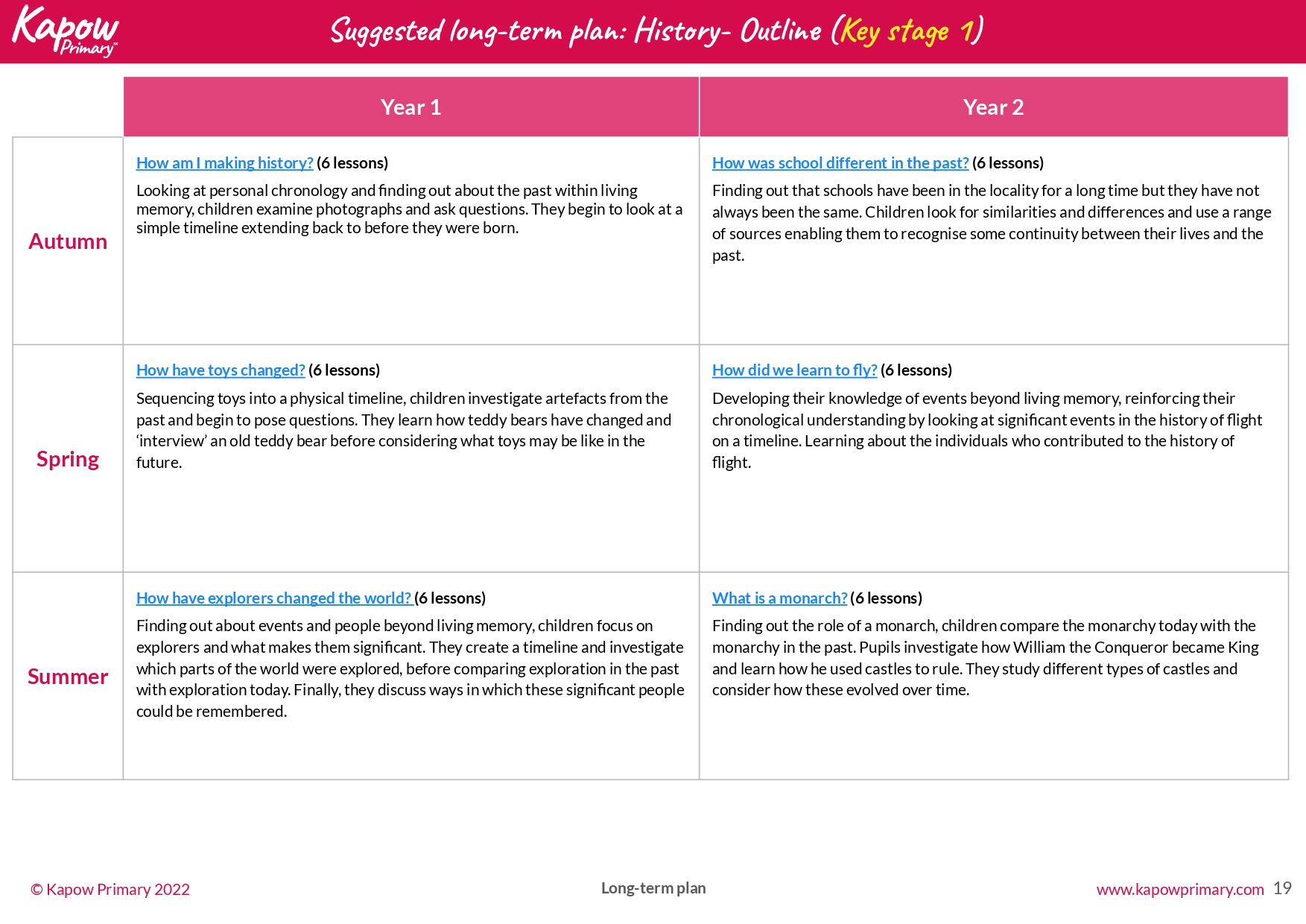
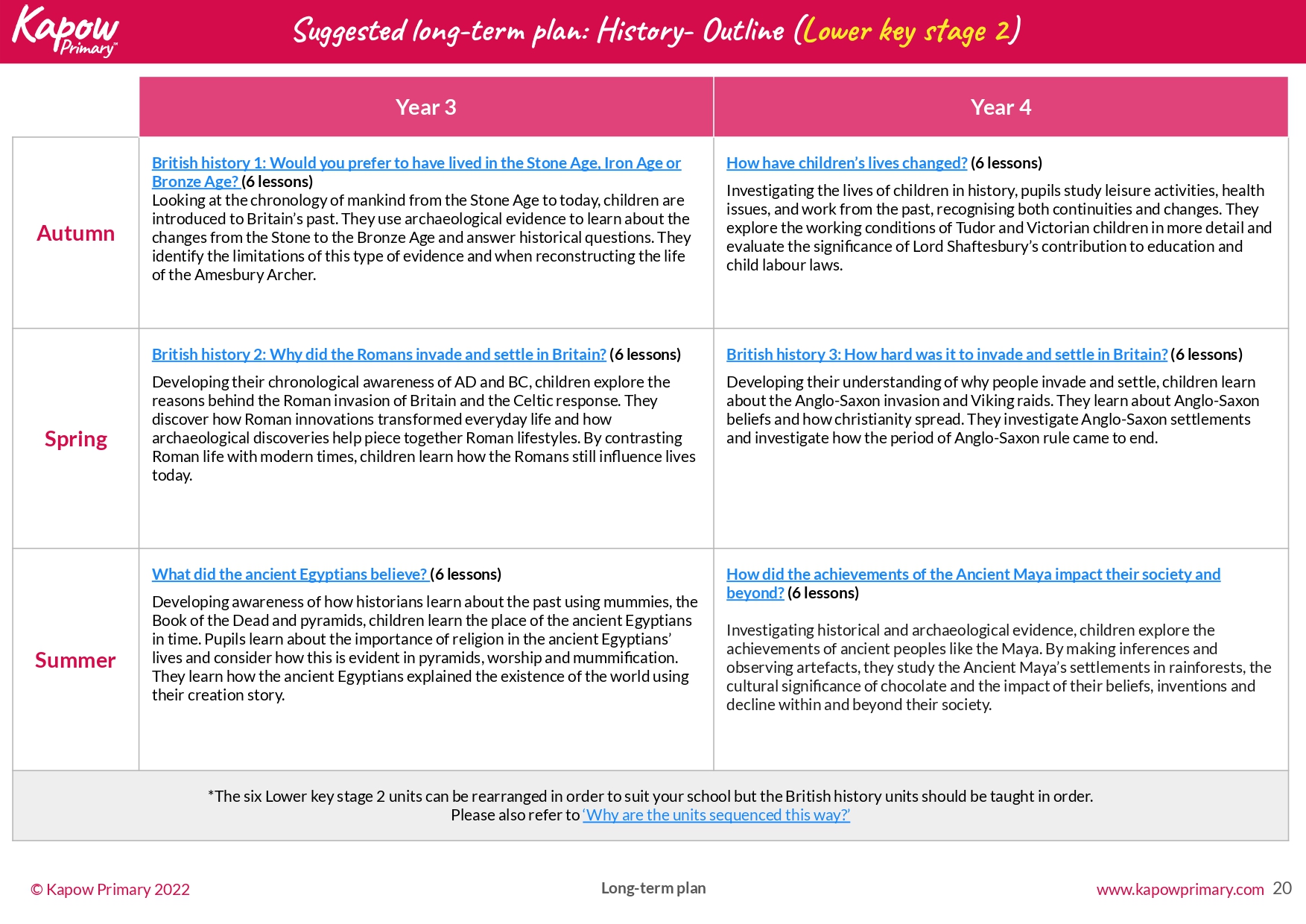
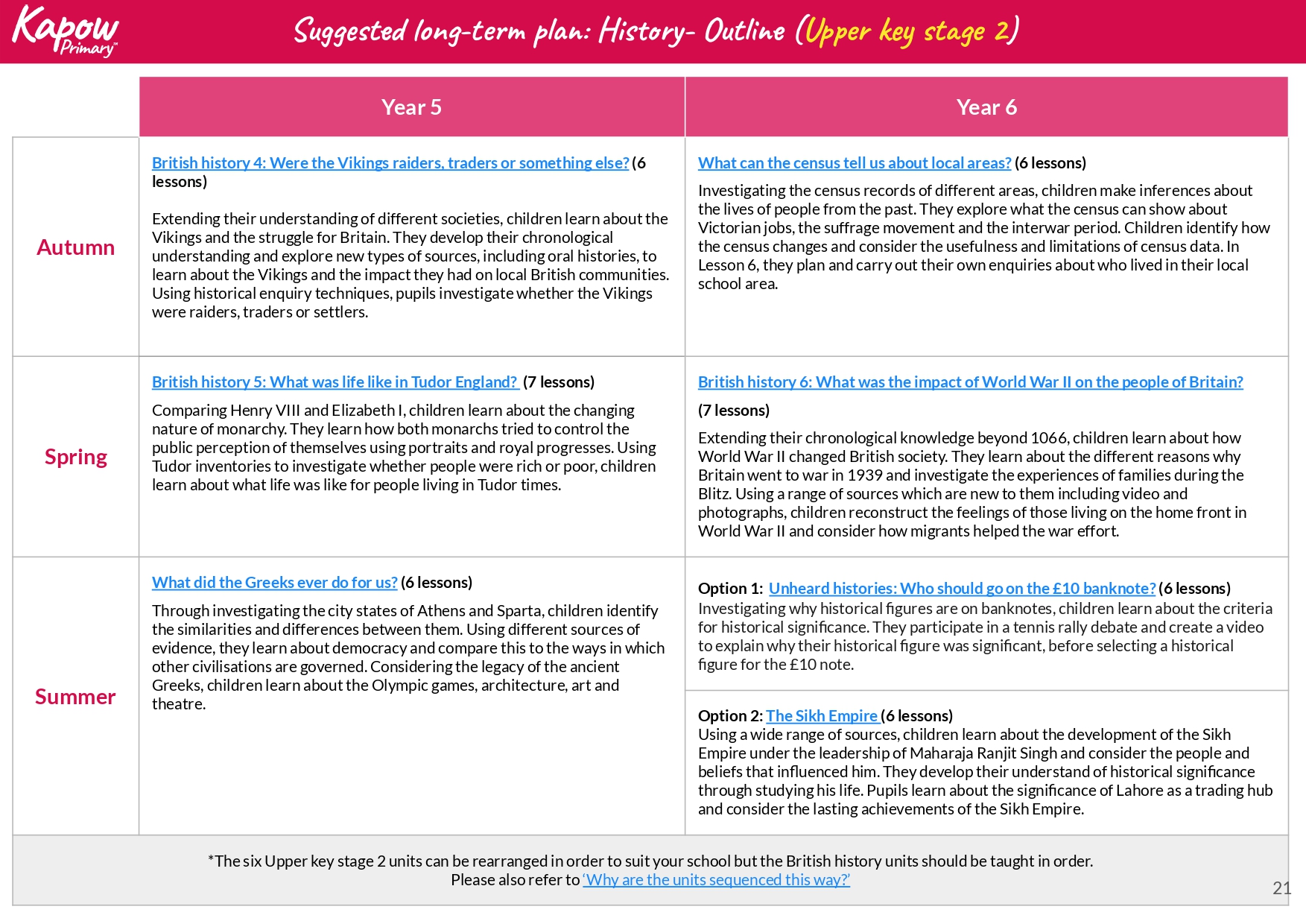
Physical Education
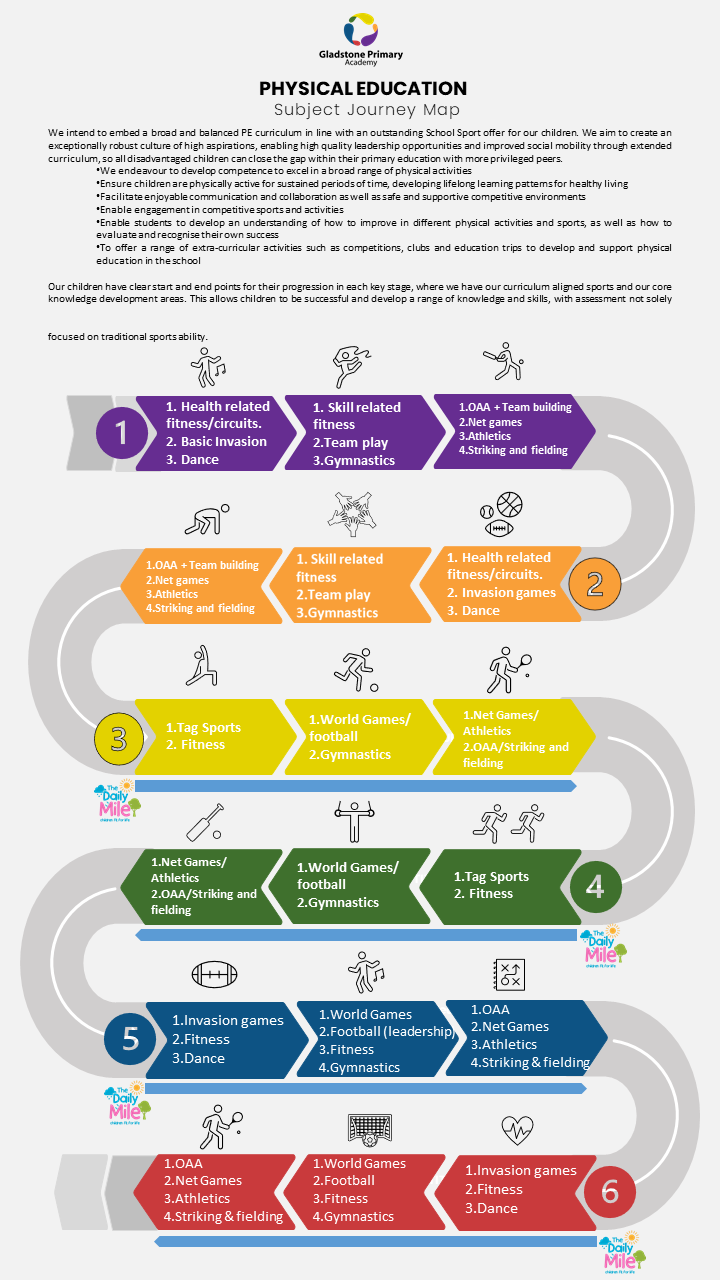
Design Technology
Design Technology is an inspiring, rigorous and practical subject. Using creativity and imagination, pupils design and make products that solve real and relevant problems within a variety of contexts, considering their own and others needs, wants and values.
They acquire a broad range of subject knowledge and draw on disciplines such as mathematics, science, engineering, computing and art. Pupils learn how to take risks, becoming resourceful, innovative, enterprising and capable citizens. Through the evaluation of past and present design and technology, they develop a critical understanding of its impact on daily life and the wider world.
High-quality design and technology education makes an essential contribution to the creativity, culture, wealth and well-being of the nation.
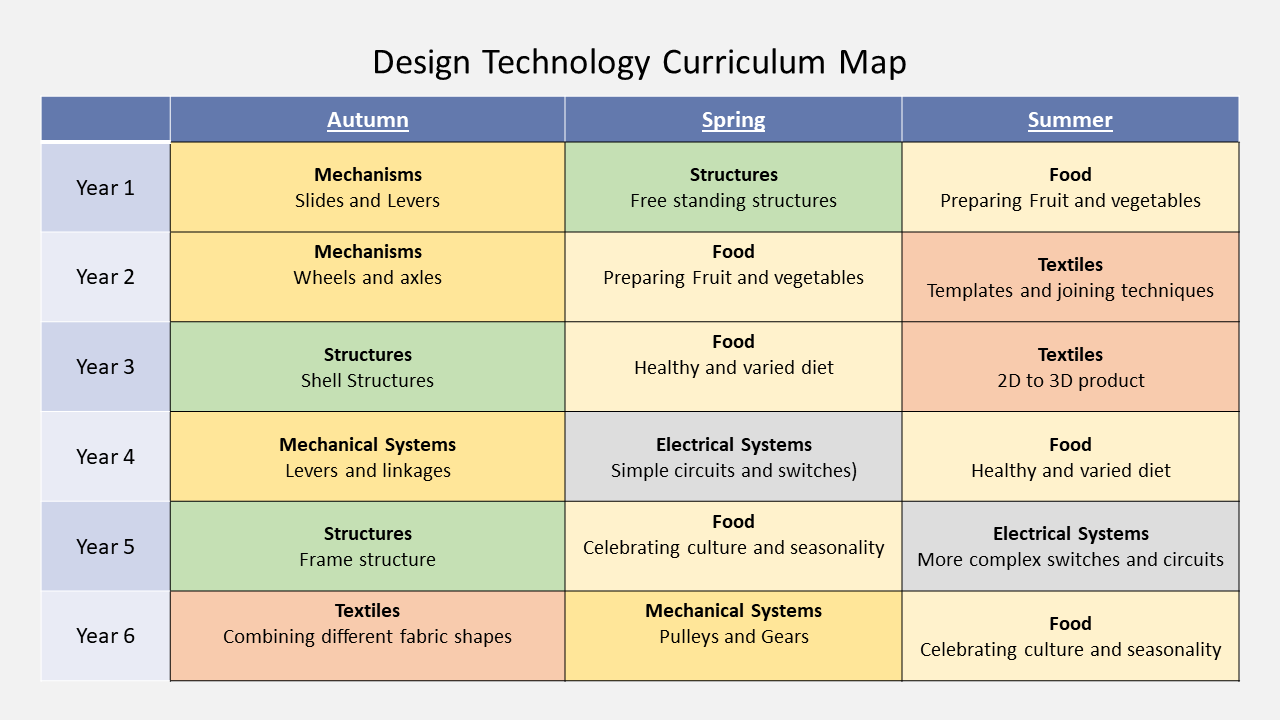
RE
The aims of the RE syllabus are for pupils:
- to develop religious literacy;
- to acquire and develop knowledge and understanding of Christianity and the other principal religions and world views represented in the United Kingdom;
- to develop an understanding of the influence of the beliefs, values and traditions on individuals, communities, societies and cultures;
- to develop attitudes of respect towards other people who hold views and beliefs different from their own;
- to develop the ability to make reasoned and informed judgements about religious issues, with reference to the principal religions and world views represented locally and in the United Kingdom.
Religions deal with some of the most profound and difficult questions in human life, questions such as:
- What is the purpose of life?
- How should people treat each other?
- How do we explain and cope with death and suffering?
Religions approach these issues in complex ways, in ways of life, culture and action, as well as ritual, tradition, story, symbol and belief. Religious Education must take account of this depth and complexity, helping pupils to an understanding appropriate to their age and aptitude. To do this RE needs:
- to develop pupils' skills;
- to enable them to ask questions;
- to discover information, to approach new material with empathy; •
- to reflect on their learning.
Pupils should not only acquire knowledge but also be able to use their knowledge to understand their world, build community, and develop their personal position. Throughout the RE curriculum pupils should be encouraged to explore religions, engage with their knowledge, and reflect on their learning and their lives.
RE is provided for all pupils, and is inclusive and broad-minded. Parents do have the right to withdraw pupils from RE: if you wish to do this, make an appointment with the head teacher / RE subject leader. The school does not support selective withdrawal from RE’.
We follow the local SACRE Agreed Syllabus.
https://www.peterborough.gov.uk/residents/schools-and-education/religious-education
Please ask in school for more details, or check for updates to this page.
PSHE (Personal, Social and Health Education)
https://www.pshecambridgeshire.org.uk/website/primary_personal_development_programme_1/235618
Our Intent
At Gladstone, we want our children to experience life in all its fullness and have a hope for their future. It is essential, therefore, that our children have a deep understanding of themselves, our shared values, their place and responsibilities within society and how best to navigate the challenges of the modern world. By studying PSHE, the children are able to explore each of these core concepts within the safety of a nurturing classroom environment. Our PSHE curriculum is designed to equip children with the skills to thrive under the pressures and demands they may face within their lives for we can only prepare our children for the road before them. In order to support our children with their development as a child and into their future, our PSHE curriculum encourages the children to respect and value themselves as special and unique; to appreciate and celebrate others and build healthy relationships with them and to respect the world and make positive change within it as a global citizen. Our curriculum ensures that children experience a relevant and engaging programme of study which allows the children to reflect upon their own experiences as well as explore and celebrate those of others. Our PSHE curriculum is planned and delivered to ignite the key skills of reciprocity, resourcefulness, resilience, curiosity and reflectiveness and teaches these skills intertwined with knowledge about the world which will ensure that our children go on to be independent, inquisitive citizens of the world who are able to use the skills and knowledge they have learnt within their learning journey at Gladstone, to positively impact upon the world.
Implementation
PSHE is at the heart of what we do at Gladstone—develop the whole child. Following the Gladstone school rules and learning behaviours, a safe, caring and positive classroom environment is established to allow for relationships to be modelled and nurtured. Within this respectful environment, the children are taught about relationships, healthy and safer lifestyles, citizenship and economic wellbeing using a carefully sequenced programme which allows children to make links between and build upon prior knowledge. Within their timetabled PSHE session, teachers ensure that the needs of their children are met by adapting the resources provided within the Cambridgeshire Personal Development Programme which we subscribe to.
To deepen the children’s understanding of key concepts such as ‘positive relationships’ children are facilitated to ask and answer questions about the concept and to discuss and debate their ideas using scenarios from school or from the wider world. This ensures that children understand the core purpose of PSHE— to give children the best chance to lead happy, healthy lives and to be responsible, active citizens.
Within PSHE, we make use of a range of high quality resources including resources from UNICEF in relation to the UN convention of the rights of the child. We ensure that our PSHE curriculum is taught in a way which creates global citizens who respect and support the rights of others. We encourage and organise for outside agencies, such as the NSPCC, Kick Ash and the Life Education Bus, to visit our school and deliver workshops.
Impact
We know that we have been successful in delivering upon our curriculum intent in PSHE, when children are able to articulate their understanding about themselves, their relationships and their rights and responsibilities both at school and in the wider world. We monitor our PSHE curriculum both in terms of learning outcomes and through the development of the whole child. We know that our PSHE curriculum has been successful when we know that children feel safe, valued and respected at school and demonstrate this through their words and actions.
Classroom practitioners monitor the children’s understanding of these concepts, their attitudes and their development of life skills through facilitating discussion and practical opportunities both within and outside the classroom. Practitioners monitor these discussions to understand and challenge the children’s depth of understanding and record their observations on a responsive planning document which enables them to track the children’s development.
At Gladstone, we recognise that it is through these concept exploration discussions, that deep learning occurs. We demonstrate the value that these discussions have upon the children’s learning journey in PSHE by recording these learning opportunities within our PSHE books. Children are able to use these books as a tool to reflect their learning journey. They can also access them to aid them in retrieval activities - one of the ways in which classroom practitioners reflect upon the success of the PSHE curriculum.
Practitioners use a range of formative assessment to evaluate the impact of the curriculum and address planning development needs accordingly.
EYFS Framework
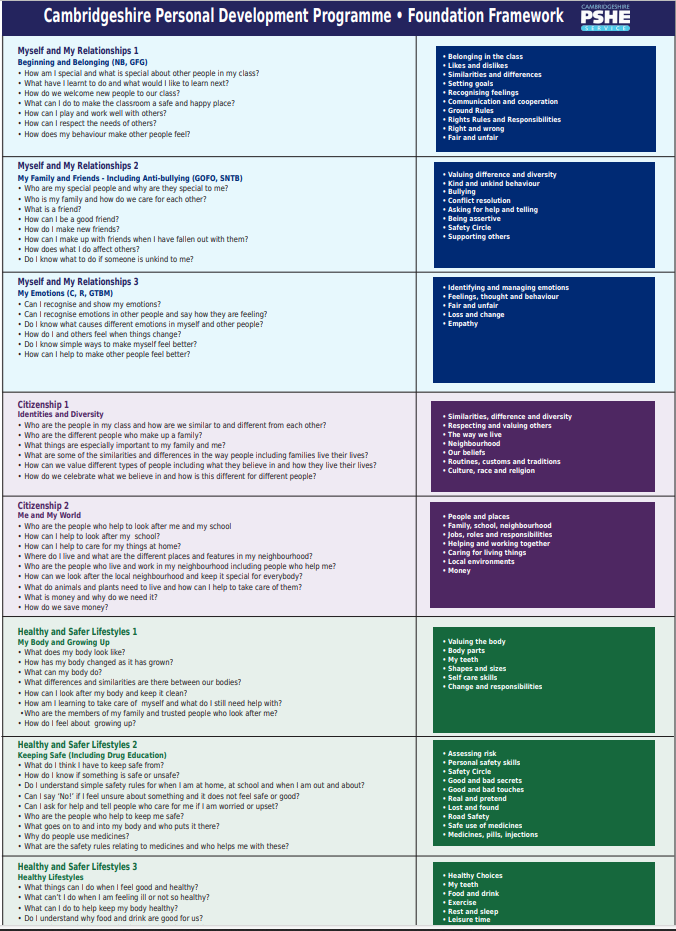
Year 1 and 2 Framework
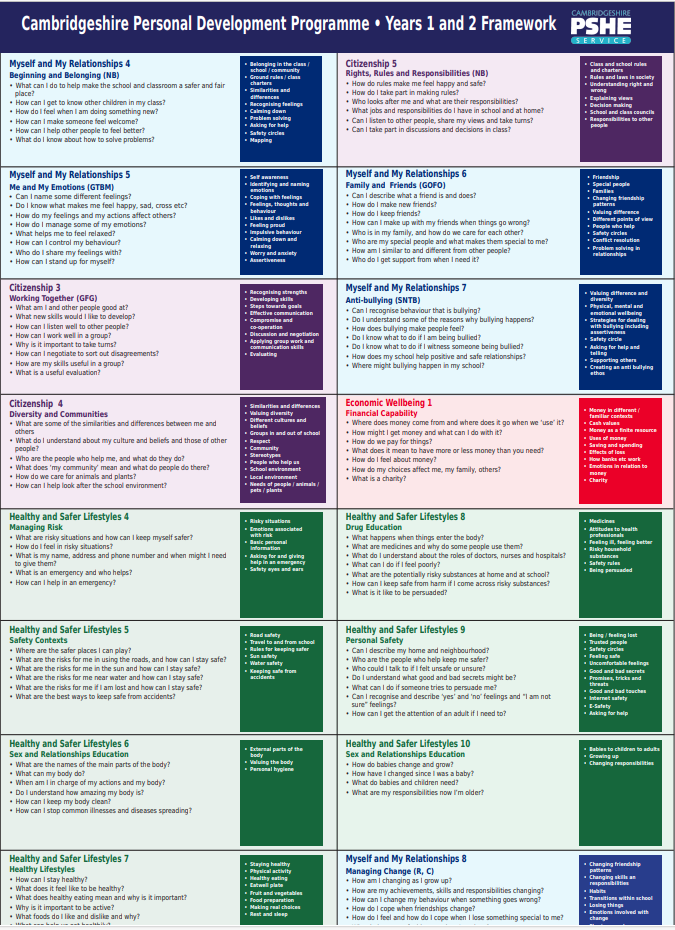
Year 3 and 4 Framework
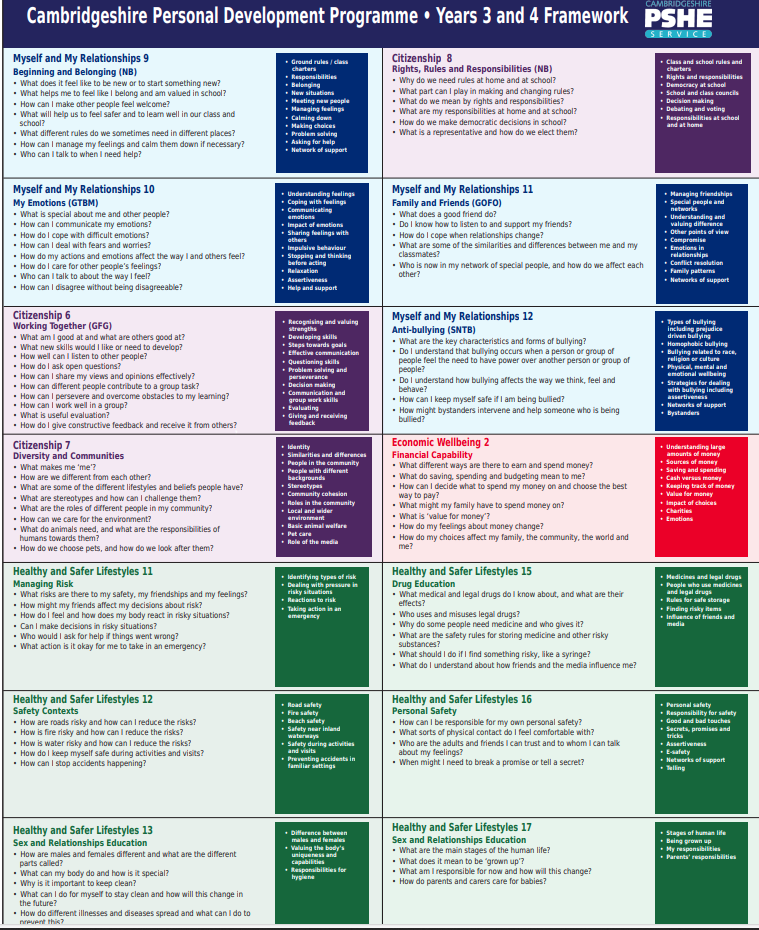
Year 5 and 6 Framework
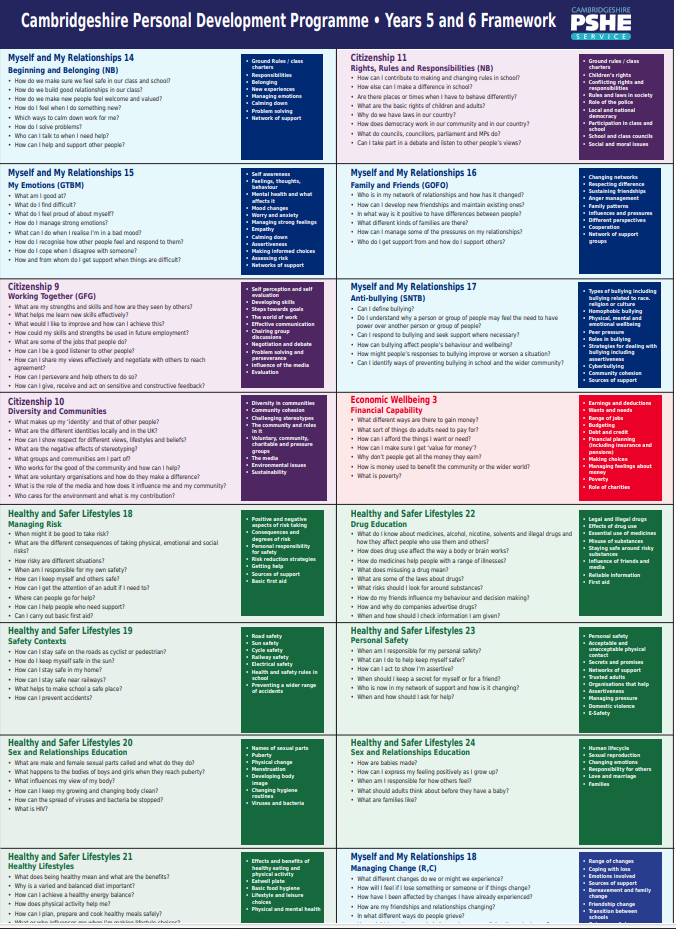
For information on Relationship Education and Health Education at Gladstone Primary Academy please click here
Computing
We believe that computing is an essential subject that plays a crucial role in preparing our pupils for a successful future in the modern digital age. Our computing curriculum is designed to provide pupils with the knowledge, skills, and understanding they need to become confident and competent users of technology, as well as to inspire and empower them to become creative and critical thinkers in the digital world.
Our intent is threefold:
1. To ensure that our pupils have a strong foundation in the fundamentals of computing, including computer science, information technology, and digital literacy. This includes teaching pupils to code and program using a range of platforms, as well as providing opportunities for them to develop their digital creativity through activities such as animation and video production.
2. To foster a love of learning in computing, and to encourage pupils to become independent and self-motivated learners. This includes providing a range of challenging and engaging activities that enable pupils to build on their existing knowledge and skills, and to explore their own interests and passions in the digital world.
3. To develop our pupils' understanding of the wider implications of technology in society, and to promote responsible and ethical use of technology. This includes teaching pupils about e-safety and cyber security, as well as encouraging them to think critically about the impact of technology on individuals, communities, and the wider world.
Through our computing curriculum, we aim to equip our pupils with the skills and knowledge they need to thrive in a rapidly changing digital landscape, and to inspire them to become lifelong learners and responsible digital citizens.
We follow the NCCE (National Centre for Computing Education) scheme of work.
Details can be found here -
Year 1 and Year 2
Key Stage 1 (teachcomputing.org)
Year 3 to Year 6
Key Stage 2 (teachcomputing.org)
Please ask in school for more details.
Art
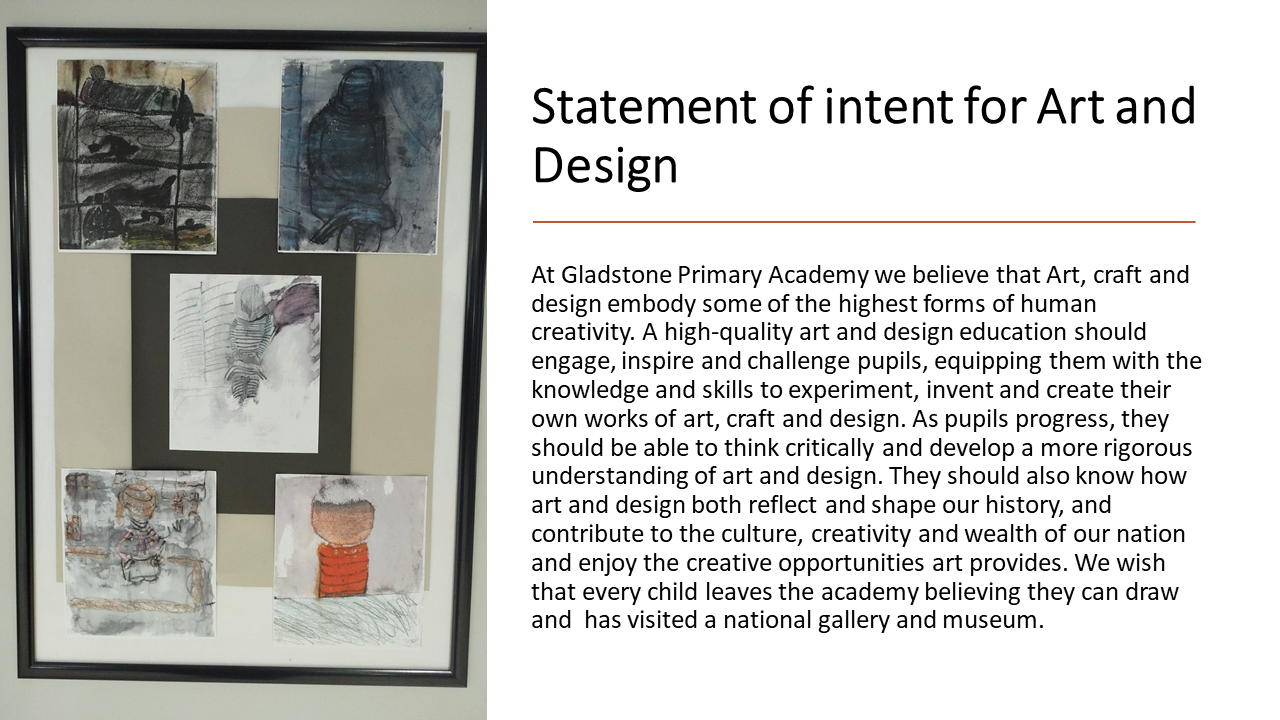
Music
At Gladstone Primary Academy, music is a highly valued subject, it supports our pupils in building a sense of community, and they grow in confidence through shared performances and singing. It enables them to show their creativity through the compositions and sounds they make and helps us to build the cultural capital of our children.
The music curriculum is underpinned by the Charanga Scheme and delivered by a specialist teacher.
Music is taught from EYFS to Year 6 and is built around a spiral progression to ensure skills are revisited and built upon each year.
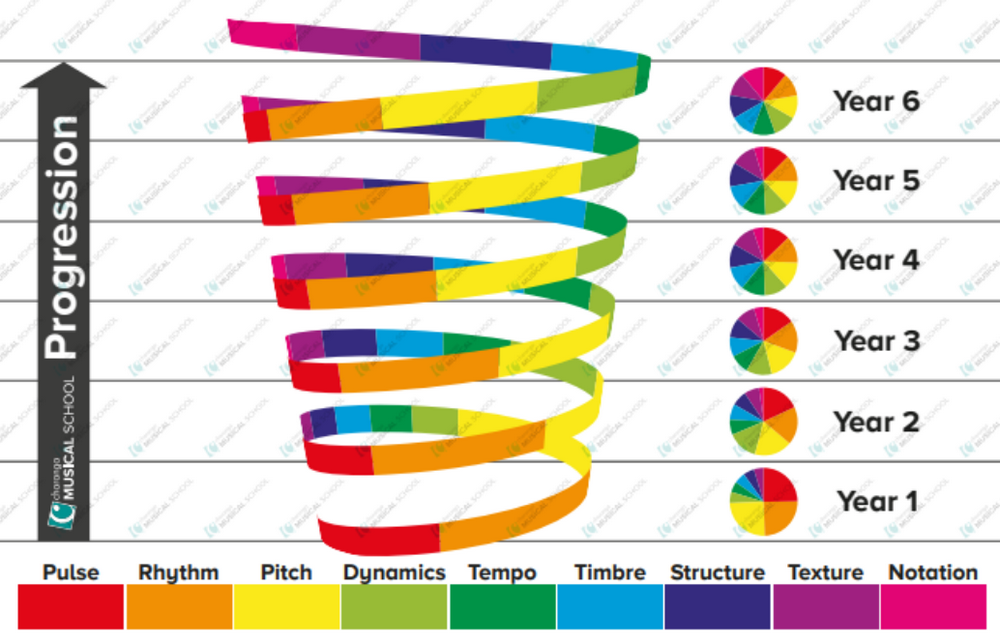
Each year group is taught a unit each half-term. Each unit is made up of 6 lessons (steps).
The units of work comprise the strands of musical learning which correspond with the National Curriculum for music:
- Listening and Appraising
- Musical Activities
- Performing
|
|
Autumn 1 |
Autumn 2 |
Spring 1 |
Spring 2 |
Summer 1 |
Summer 2 |
|
Year 1 |
Hey You! |
Rhythm In The Way We Walk & Banana Rap |
In The Groove |
Round & Round |
Your Imagination |
Reflect, Rewind & Replay |
|
Year 2 |
Hands, Feet, Heart |
Ho Ho Ho |
I Wanna Play In A Band |
Zootime |
Friendship Song |
Reflect, Rewind & Replay |
|
Year 3 |
Let Your Spirit Fly |
Glockenspiel Stage 1 |
Three Little Birds |
The Dragon Song |
Bringing Us Together |
Reflect, Rewind & Replay |
|
Year 4 |
Mamma Mia |
Glockenspiel Stage 2 |
Stop! |
Lean On Me |
Blackbird |
Reflect, Rewind & Replay |
|
Year 5 |
Livin’ On A Prayer |
Classroom Jazz 1 |
Make You Feel My Love |
The Fresh Prince Of |
Dancing In The Street |
Reflect, Rewind & Replay |
|
Year 6 |
Happy |
Classroom Jazz 2 |
A New Year Carol |
You’ve Got A Friend |
Music & Me |
Reflect, Rewind & Replay |
Spanish
Welcome to our Spanish Curriculum at Gladstone Primary Academy
At Gladstone Primary Academy, we are committed to providing every child with the invaluable opportunity to read, speak, listen, and write in Spanish. Our approach extends beyond language acquisition; we aim to foster a deep appreciation for the vibrant culture that lies at the heart of the Spanish language. Recognising the rich diversity of languages spoken by our students, learning Spanish opens a gateway for all children to learn together as equals, regardless of their level of English language proficiency.
Our Spanish curriculum has been thoughtfully designed to be both practical and inspiring, with the goal of igniting a lifelong passion for language learning. We hope that this passion will continue to flourish as our students progress into Key Stage 3, regardless of the specific language they choose to study.
Our Spanish curriculum aligns with the National Curriculum framework for Languages at Key Stage 2. Weekly lessons are delivered by a dedicated Spanish-speaking specialist teacher, ensuring that students receive expert guidance and instruction. Each lesson is carefully crafted, with a duration of at least 45 minutes per week, providing students with ample time to immerse themselves in the language effectively. Spanish phonics is integrated into our curriculum, building a solid foundation for correct pronunciation and intonation.
The objectives of our Modern Foreign Language (Spanish) curriculum at Gladstone Primary Academy are as follows:
- Understand and respond to spoken and written language from a variety of sources. Our aim is to equip students with the ability to comprehend and effectively respond to different types of spoken and written texts in Spanish.
- Speak with precision in terms of pronunciation and intonation. We strive to teach our students to communicate confidently in Spanish, emphasising clear and accurate speech.
- Write at varying lengths. Our curriculum empowers students to express themselves in writing in Spanish, adapting to different contexts and styles.
- Develop an appreciation of the culture behind the language. We encourage our students to explore and embrace the rich cultural tapestry woven into the Spanish language, deepening their understanding and connection to the Hispanic world.
At Gladstone Primary Academy, we are proud to offer a comprehensive Spanish curriculum that not only equips students with language skills but also fosters an enduring love for cultural diversity and language learning.
At Gladstone Primary Academy, our commitment to language proficiency extends beyond the classroom, and it is evident in our students' exceptional achievements. In Years 5 and 6, Gladstone students participate in the National Primary Spanish Bee, an exciting competition akin to a Spelling Bee, but with Spanish vocabulary.
We take immense pride in our students' remarkable performance in the national finals of this prestigious event, where they compete against schools from across the country. For the past four years, Gladstone Academy has consistently demonstrated its consistency in outcomes and holding the title of national champions.
Let's take a look at our outstanding track record:
- 2020: 1st, 2nd, and 3rd place
- 2021: 1st and 2nd place
- 2022: 1st, 2nd, and 3rd place
- 2023: 1st and 3rd place
Spanish Curriculum -


